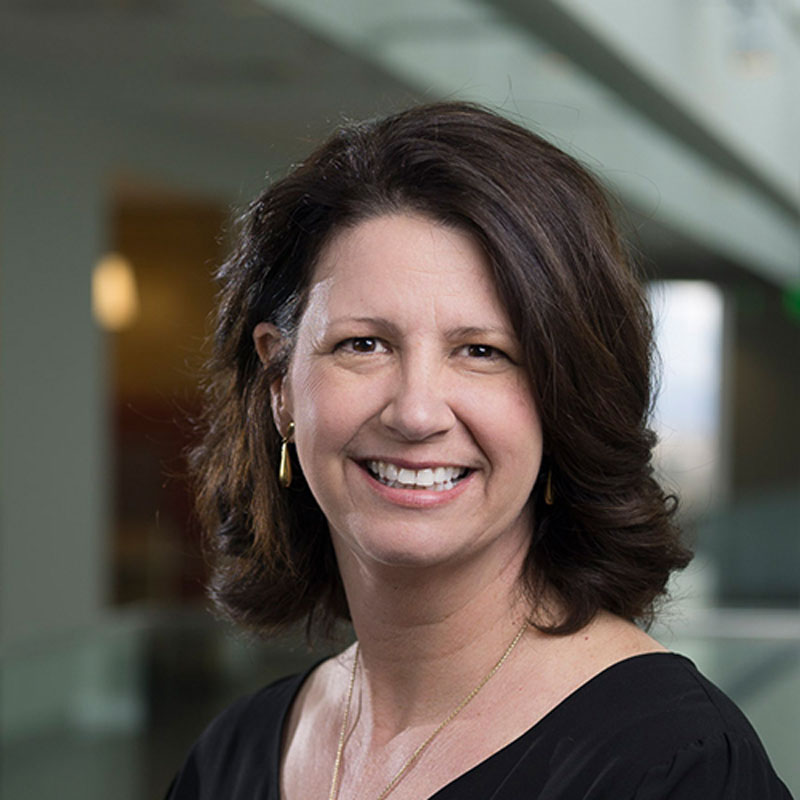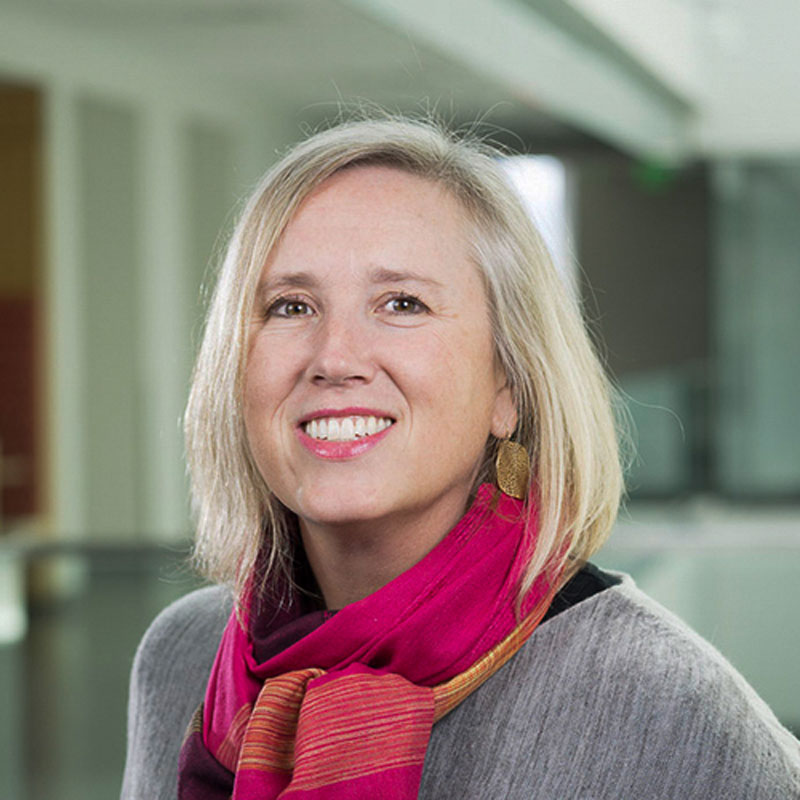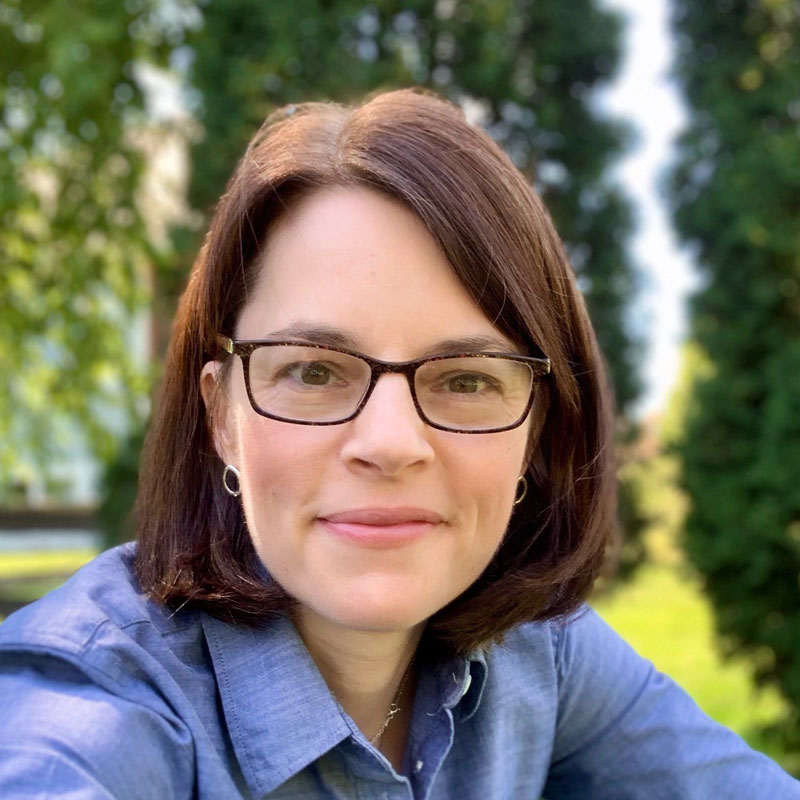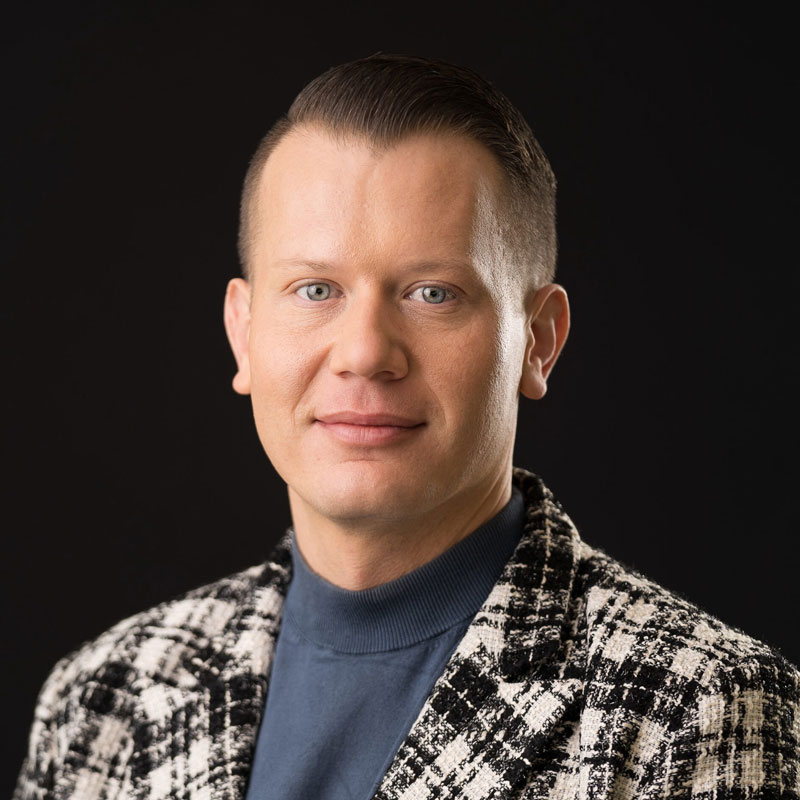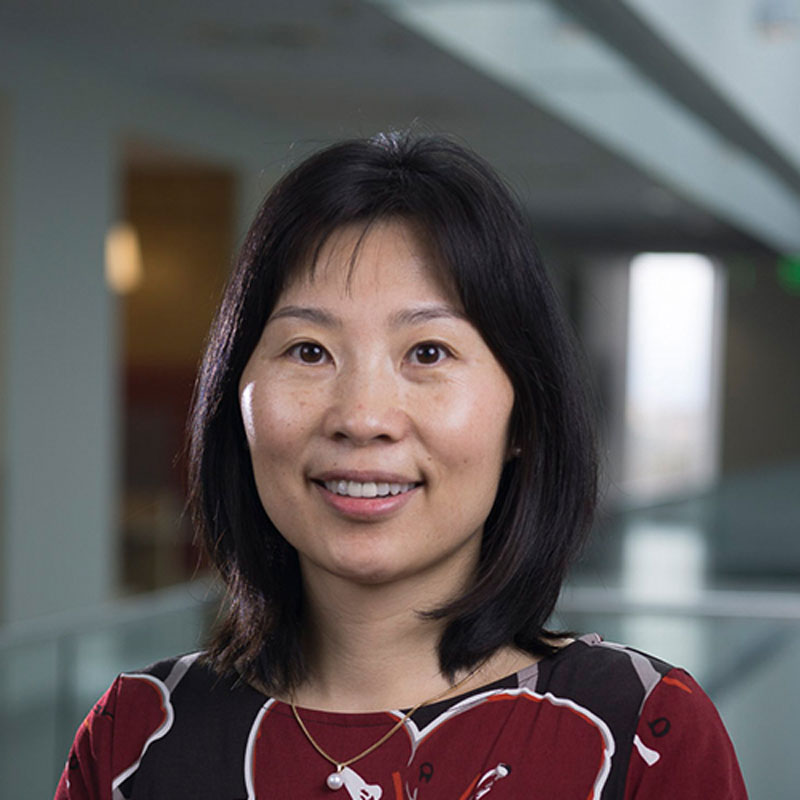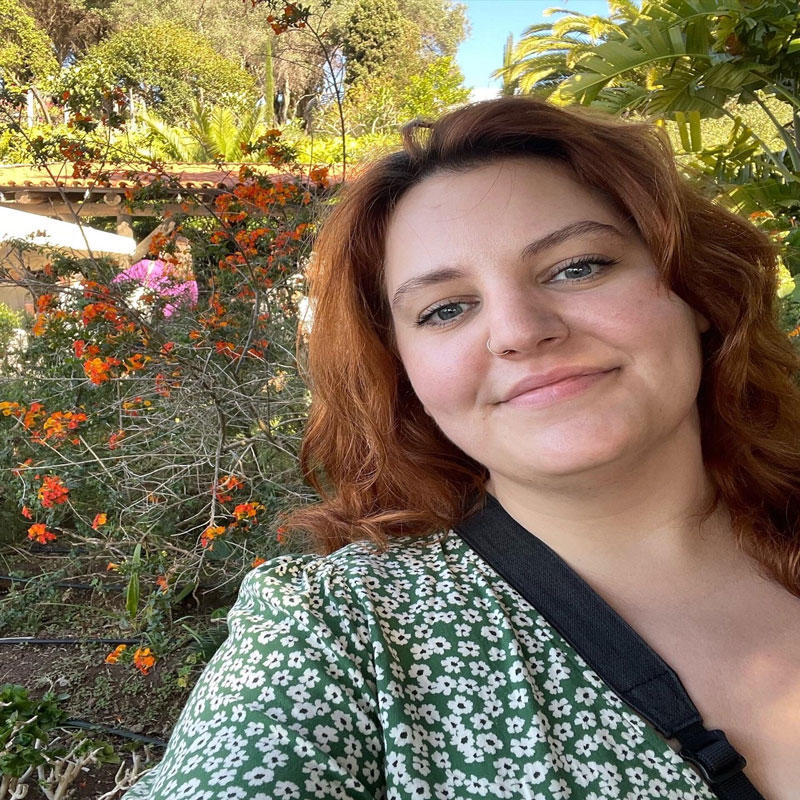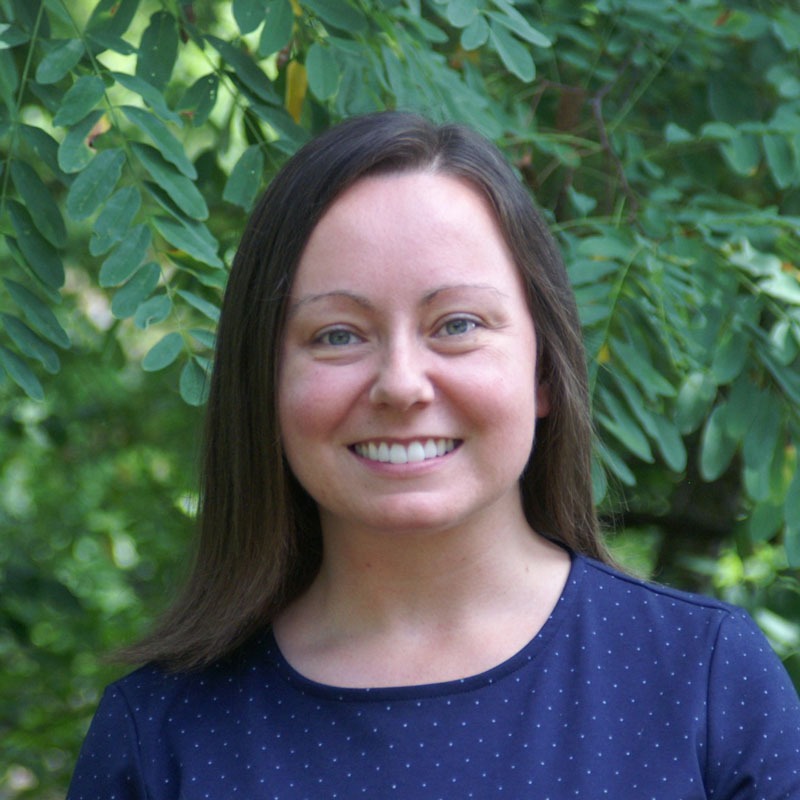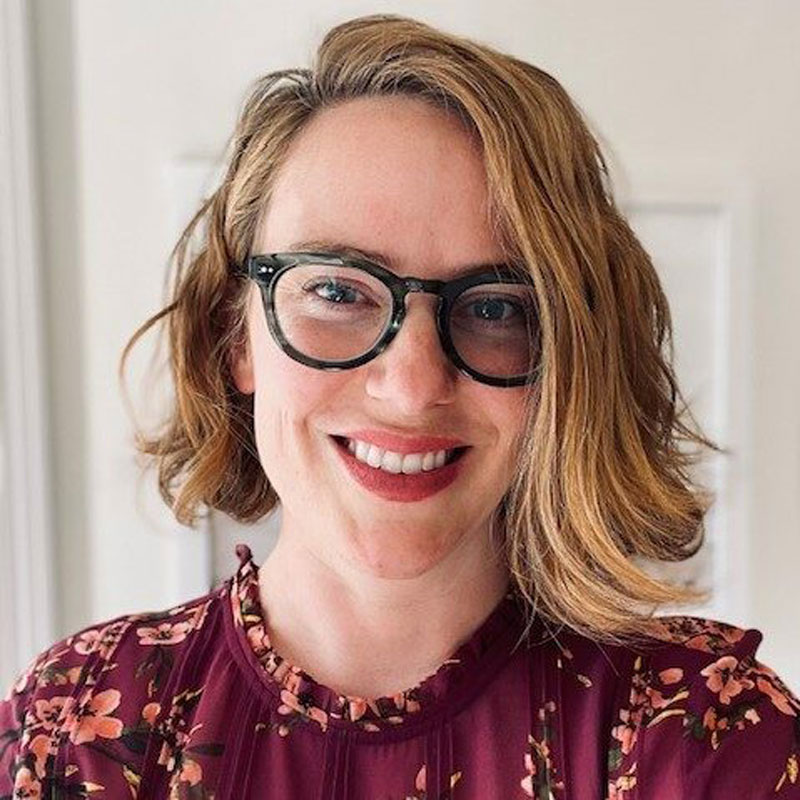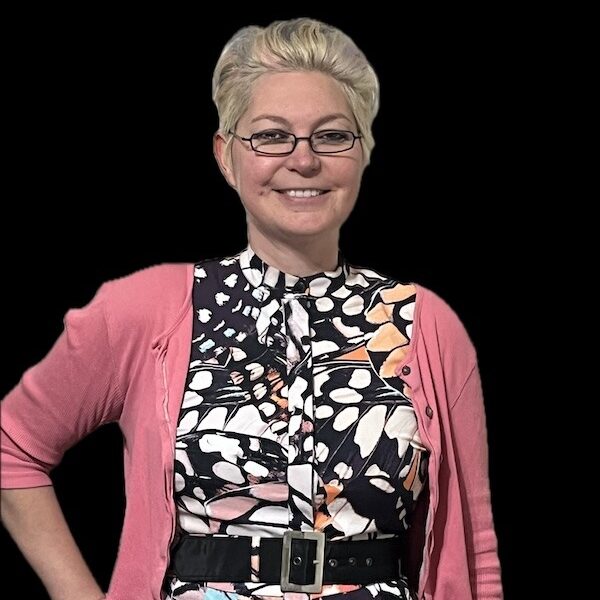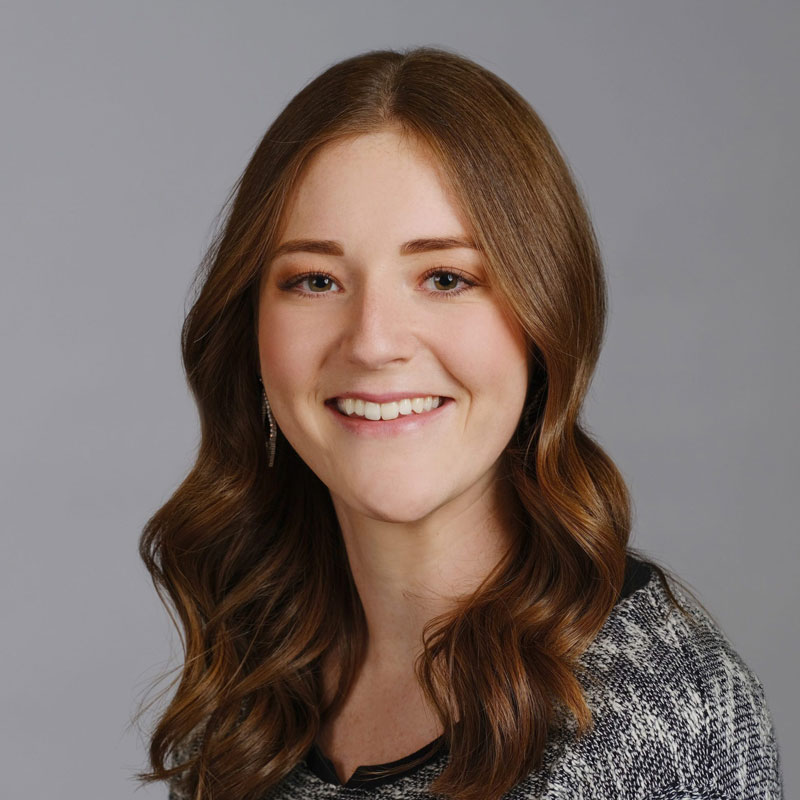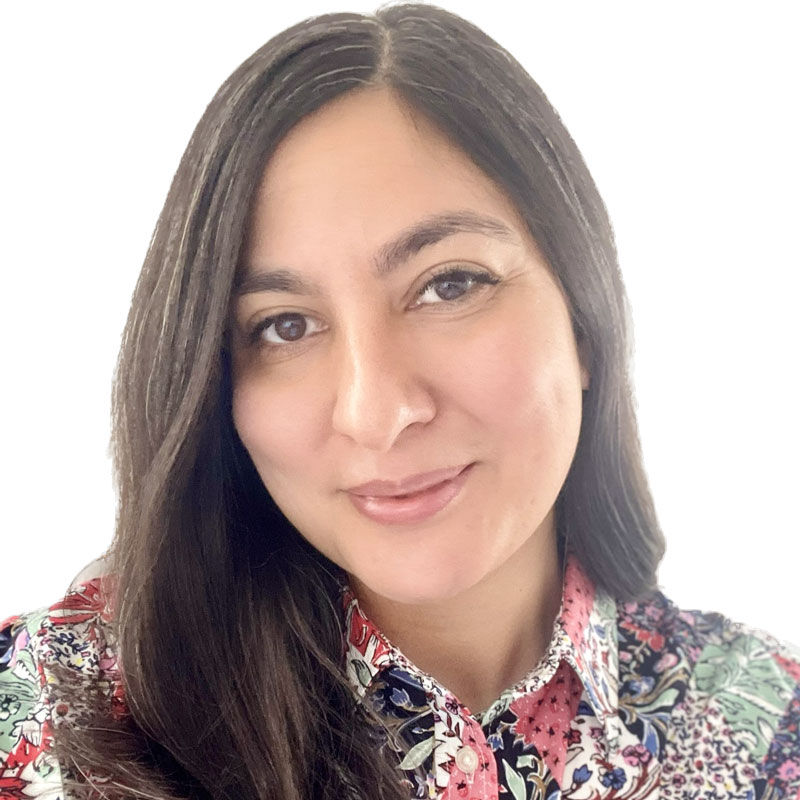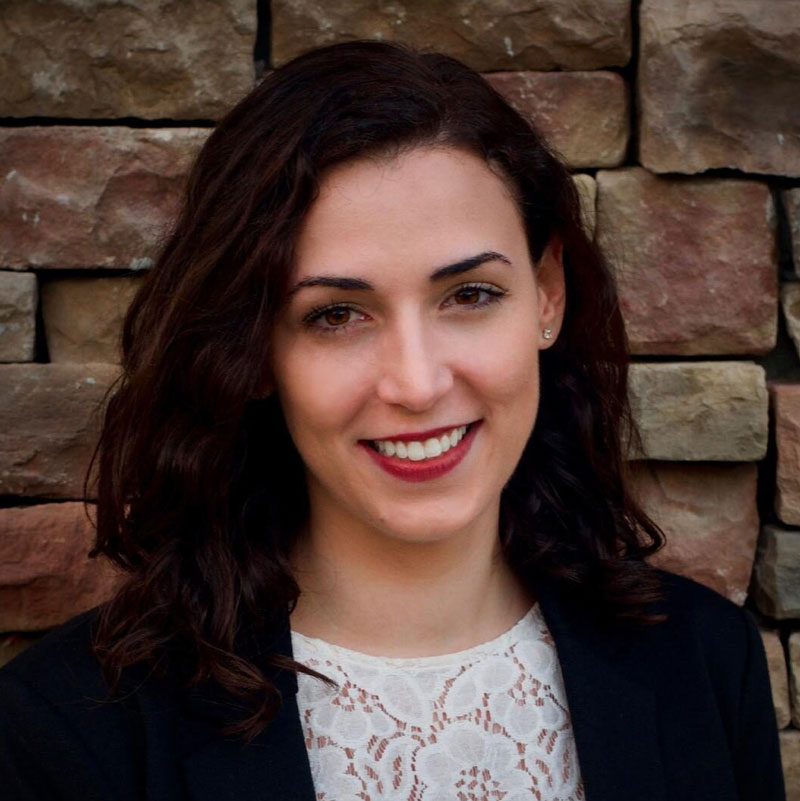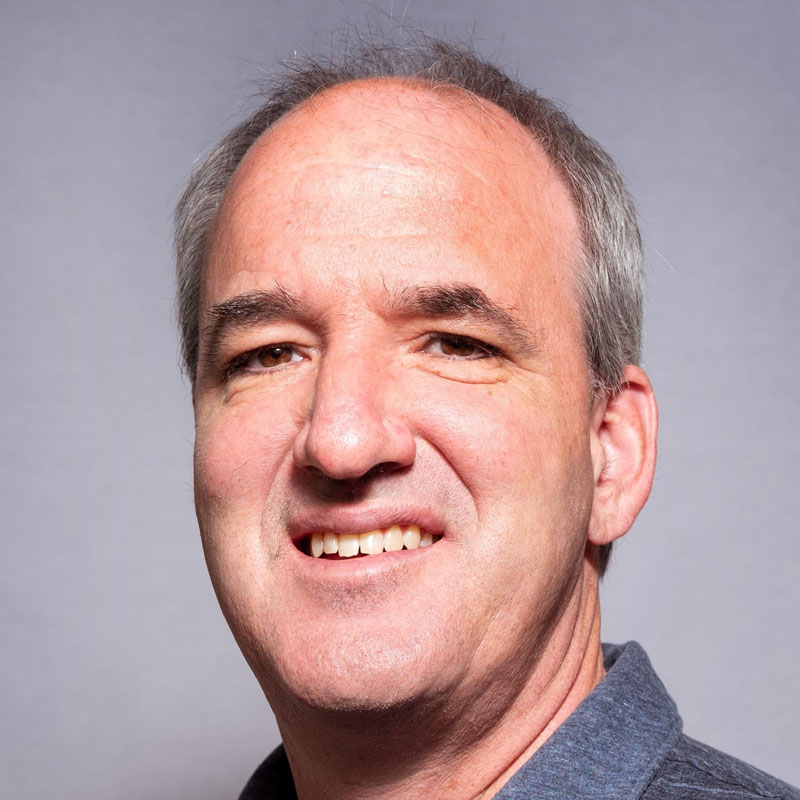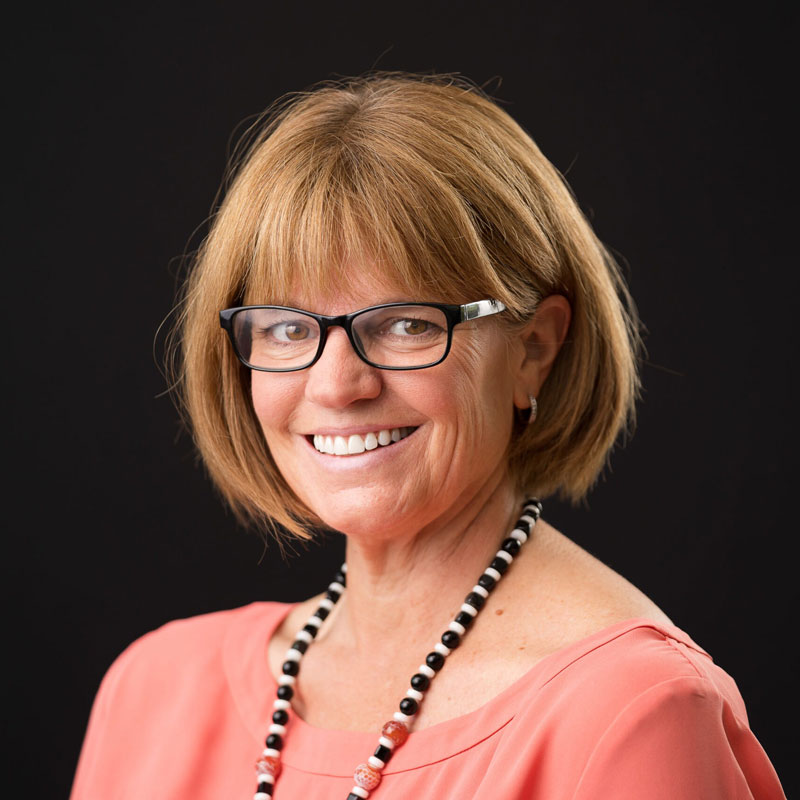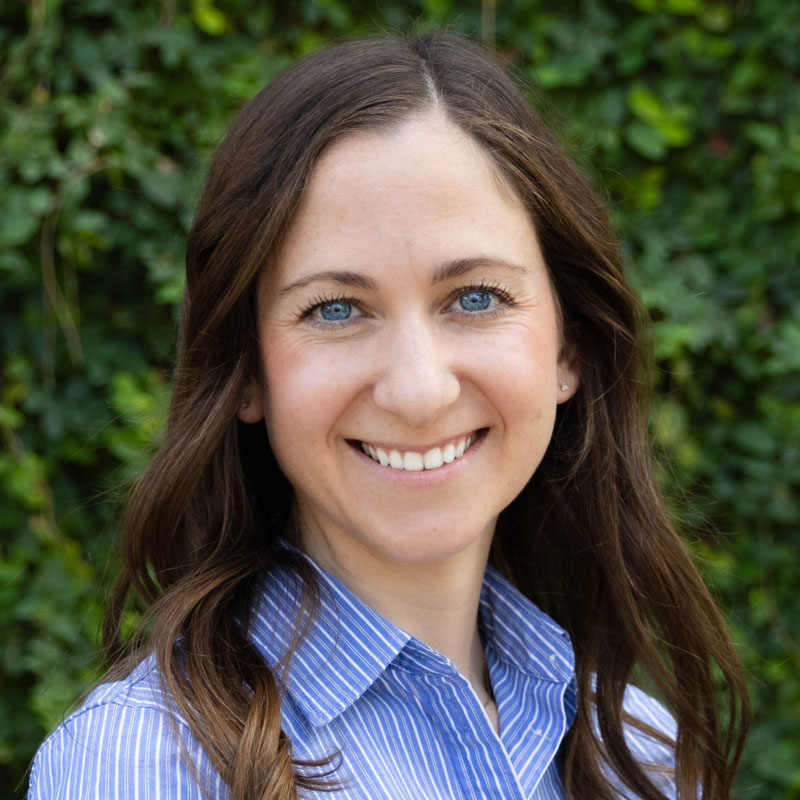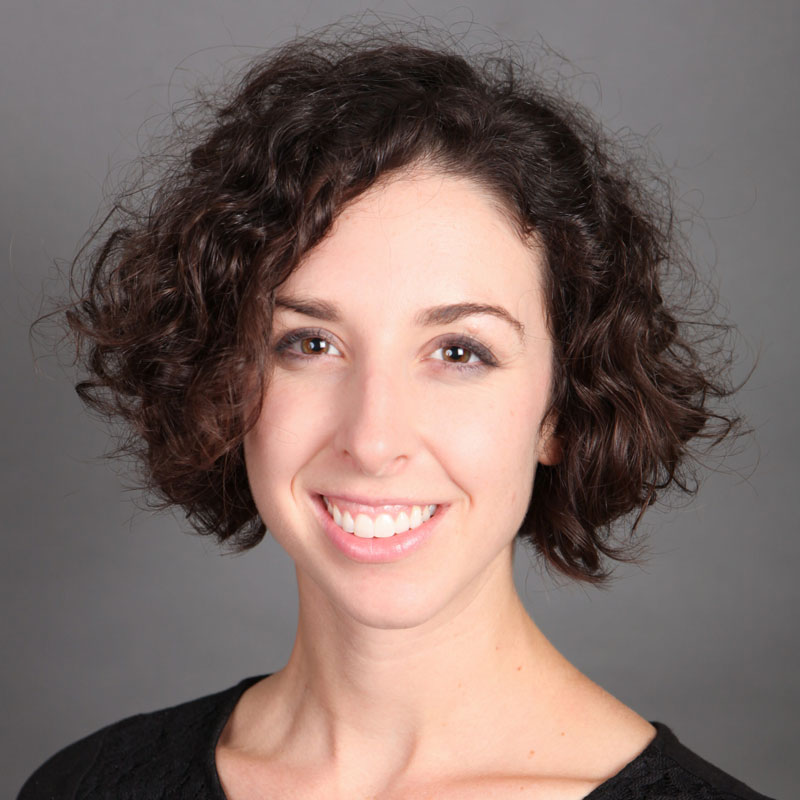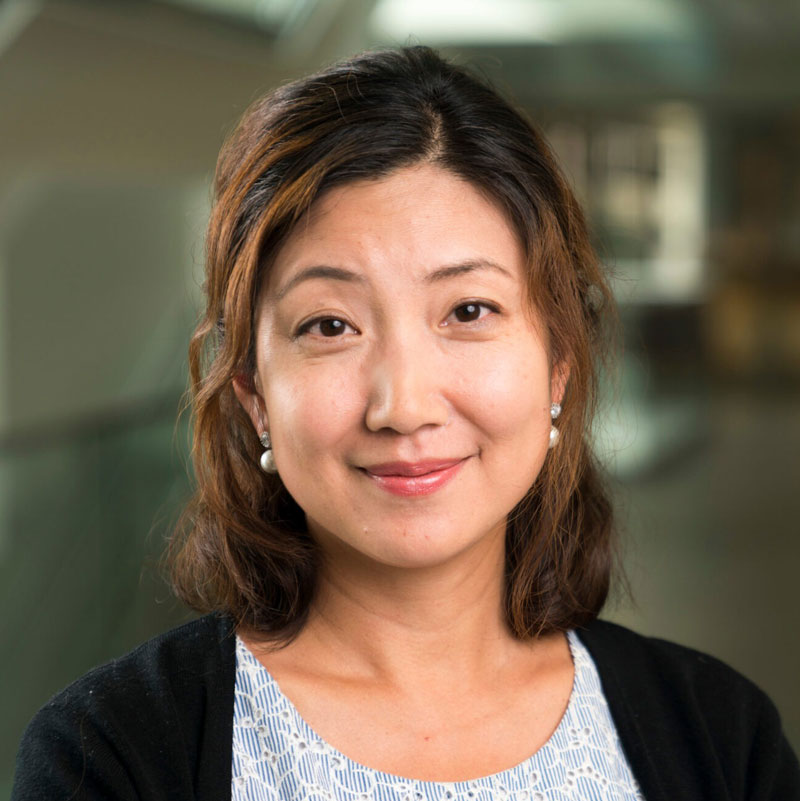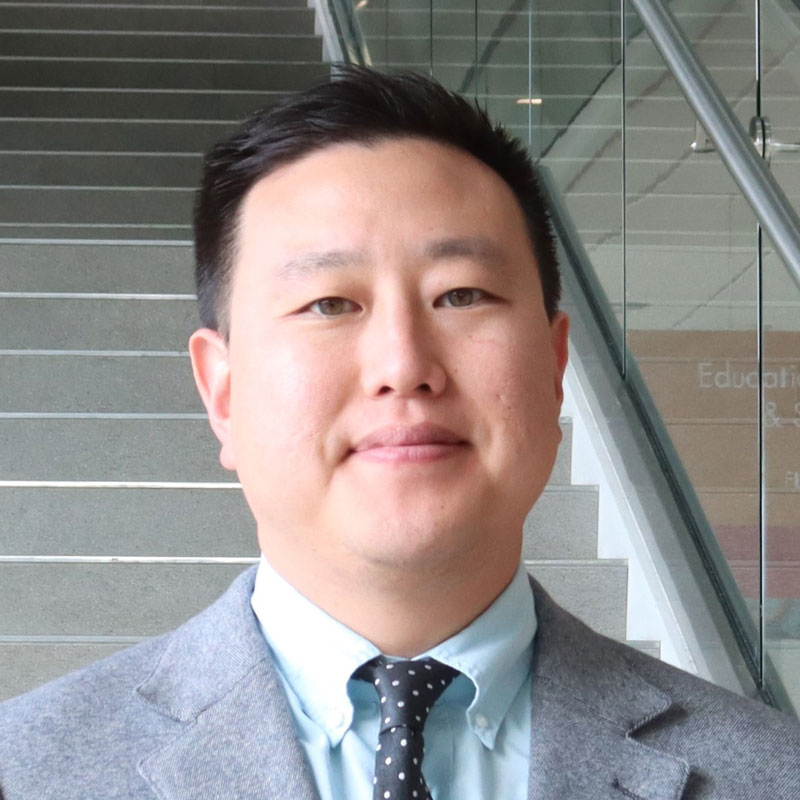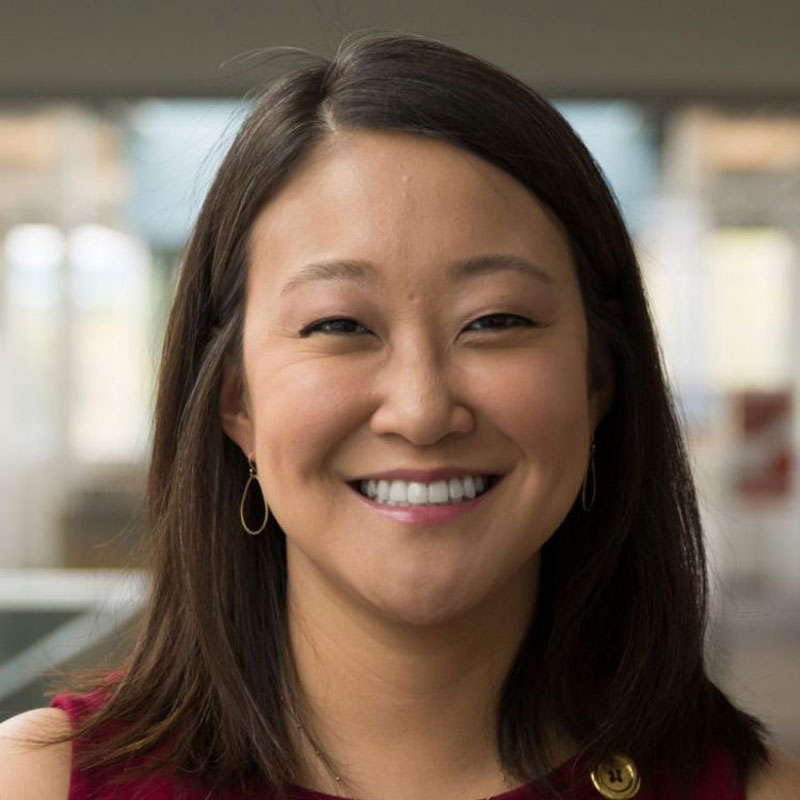Our Team
UEPC Directors
Andrea Rorrer, Ph.D.
DirectorAndrea Rorrer is Director of the Utah Education Policy Center at the University of Utah, Associate Dean for Research in the College of Education, and a Professor in the Department of Educational Leadership and Policy Studies. Andrea received her M.S. at the University of Virginia and her Ph.D. from the University of Texas, Austin. She has over 32 years of professional experience in education, including roles as a policy analyst and a research associate in Texas, and a school administrator and a classroom teacher in Virginia.
Andrea’s expertise is school, district, and state leadership, policy, and educational change, particularly those changes aimed at increasing equity in student access and outcomes. Her work emphasizes systems approaches to build capacity and conditions for equity and excellence. She conducts research with and provides technical assistance and support to local schools and school districts, the state board of education, the legislature, and community-based organizations. In addition to policy and research reports, her scholarship on leadership preparation and practice, system change, school improvement, and educational policy has been published in the Journal of Educational Administration, Educational Administration Quarterly (EAQ), Theory into Practice, Educational Policy, the Journal of Educational Policy, Journal of Special Education Leadership, Journal of Cases in Educational Leadership, Peabody Journal of Education, Journal of Research on Educational Leadership and Economics of Education Review, and the UCEA Review, among other publications (e.g., 2006 Politics of Education Yearbook) and book chapters.
In the past, she served as an associate editor for EAQ, and has served on the editorial boards for the American Educational Research Journal-Social Institutional Analysis, and the Journal of Cases in Educational Leadership and a co-features editor for the UCEA Review. She is currently an associate editor for EAQ and on the editorial board for American Educational Research Journal.
Andrea was previously interim-chair for the Department of Educational Leadership and Policy. She was also a member of the Executive Committee member (2006-2013) and UCEA President of the University Council for Educational Administration (2012). She is currently co-PI and Co-Director with Michelle Young (Loyola Marymount University) for the national project INSPIRE Leadership Collaborative. The INSPIRE Collaborative provides valid and reliable evaluation and research tools, training materials, and strategies for leadership preparation program and practice improvement, including the INSPIRE-Leadership Surveys.
Andrea in collaboration with colleagues Cori Groth and Janice Bradley has developed numerous professional learning programs in leadership. These co-developed leadership professional learning and school improvement designs are research-based, practice informed, and focused on enhancing transfer of learning for transformational purposes. Examples of this work includes the Leadership and Inquiry for Turnaround (LIFT) and district-wide Leadership Academy for leaders and leadership teams that are focused on excellence, equity, and improvement.
Her dissertation Leadership and Equity: From Reproduction to Reconstruction: An Institutional Analysis was awarded the American Education Research Association, Division A "Education Administration" 2001Dissertation Award. She is the 2006 recipient of the Jack A. Culbertson Award, which is given annually by the University Council for Educational Administration for outstanding contributions to the field as a junior professor. In addition, she is the 2008 College of Education at the University of Utah Research Award, the 2019 College of Education Service Award and recognized as part of the 2019 Celebrate U Award.
801-581-4207Andrea’s expertise is school, district, and state leadership, policy, and educational change, particularly those changes aimed at increasing equity in student access and outcomes. Her work emphasizes systems approaches to build capacity and conditions for equity and excellence. She conducts research with and provides technical assistance and support to local schools and school districts, the state board of education, the legislature, and community-based organizations. In addition to policy and research reports, her scholarship on leadership preparation and practice, system change, school improvement, and educational policy has been published in the Journal of Educational Administration, Educational Administration Quarterly (EAQ), Theory into Practice, Educational Policy, the Journal of Educational Policy, Journal of Special Education Leadership, Journal of Cases in Educational Leadership, Peabody Journal of Education, Journal of Research on Educational Leadership and Economics of Education Review, and the UCEA Review, among other publications (e.g., 2006 Politics of Education Yearbook) and book chapters.
In the past, she served as an associate editor for EAQ, and has served on the editorial boards for the American Educational Research Journal-Social Institutional Analysis, and the Journal of Cases in Educational Leadership and a co-features editor for the UCEA Review. She is currently an associate editor for EAQ and on the editorial board for American Educational Research Journal.
Andrea was previously interim-chair for the Department of Educational Leadership and Policy. She was also a member of the Executive Committee member (2006-2013) and UCEA President of the University Council for Educational Administration (2012). She is currently co-PI and Co-Director with Michelle Young (Loyola Marymount University) for the national project INSPIRE Leadership Collaborative. The INSPIRE Collaborative provides valid and reliable evaluation and research tools, training materials, and strategies for leadership preparation program and practice improvement, including the INSPIRE-Leadership Surveys.
Andrea in collaboration with colleagues Cori Groth and Janice Bradley has developed numerous professional learning programs in leadership. These co-developed leadership professional learning and school improvement designs are research-based, practice informed, and focused on enhancing transfer of learning for transformational purposes. Examples of this work includes the Leadership and Inquiry for Turnaround (LIFT) and district-wide Leadership Academy for leaders and leadership teams that are focused on excellence, equity, and improvement.
Her dissertation Leadership and Equity: From Reproduction to Reconstruction: An Institutional Analysis was awarded the American Education Research Association, Division A "Education Administration" 2001Dissertation Award. She is the 2006 recipient of the Jack A. Culbertson Award, which is given annually by the University Council for Educational Administration for outstanding contributions to the field as a junior professor. In addition, she is the 2008 College of Education at the University of Utah Research Award, the 2019 College of Education Service Award and recognized as part of the 2019 Celebrate U Award.
andrea.rorrer@utah.edu
Cori Groth, Ph.D.
Associate DirectorCori Groth, Ph.D. is the UEPC Associate Director who works with the Bridgeworks School Improvement team and the UEPC Evaluation Team to support educational and community-based organizations in improving programs, policies, and practices that result in excellent and equitable outcomes for the youth and adults they serve.
Cori is also an Associate Adjunct Faculty with the Educational Leadership and Policy Department in the College of Education where she teaches courses in teacher and leadership preparation programs and serves on various department and doctoral committees.
Cori believes in the power of education to create windows of opportunities for youth to thrive and become active members of our communities and to make the world a better place. She also believes that strong leadership and engaging in continuous improvement and inquiry, including having access to high quality research and evaluation, are the keys to getting the desired outcomes.
Cori has over 20 years of experience helping clients understand whether educational policies, programs, and practices are being implemented as intended, whether they are effective and have an impact, and how they might be improved. She also has over 10 years of experience in supporting leadership development and school improvement as a learning partner with individual schools and through the design and implementation of a variety of leadership development programs.
Since joining the UEPC in 2006, Cori has led studies on charter school governance, comprehensive school reform, arts education, school leadership and improvement, afterschool programs and other community school initiatives, state education agency capacity building efforts, school counseling, and variety of professional learning programs for teachers in K-12 and higher education.
She holds a Ph.D. in Sociology from the University of Utah, an M.A. in Sociology from Arizona State University, and a B.S. in Public Relations from the University of Utah.
Cori is also a member of the American Education Research Association, the University Council of Educational Administration, and the American Evaluation Association. Cori is also a member of Learning Forward, the Association for Supervision and Curriculum Development (ASCD), and the National School Reform Faculty. Locally she has been involved in the Utah Afterschool Network as a past board member, president, and advisory board member.
801-581-5177Cori is also an Associate Adjunct Faculty with the Educational Leadership and Policy Department in the College of Education where she teaches courses in teacher and leadership preparation programs and serves on various department and doctoral committees.
Cori believes in the power of education to create windows of opportunities for youth to thrive and become active members of our communities and to make the world a better place. She also believes that strong leadership and engaging in continuous improvement and inquiry, including having access to high quality research and evaluation, are the keys to getting the desired outcomes.
Cori has over 20 years of experience helping clients understand whether educational policies, programs, and practices are being implemented as intended, whether they are effective and have an impact, and how they might be improved. She also has over 10 years of experience in supporting leadership development and school improvement as a learning partner with individual schools and through the design and implementation of a variety of leadership development programs.
Since joining the UEPC in 2006, Cori has led studies on charter school governance, comprehensive school reform, arts education, school leadership and improvement, afterschool programs and other community school initiatives, state education agency capacity building efforts, school counseling, and variety of professional learning programs for teachers in K-12 and higher education.
She holds a Ph.D. in Sociology from the University of Utah, an M.A. in Sociology from Arizona State University, and a B.S. in Public Relations from the University of Utah.
Cori is also a member of the American Education Research Association, the University Council of Educational Administration, and the American Evaluation Association. Cori is also a member of Learning Forward, the Association for Supervision and Curriculum Development (ASCD), and the National School Reform Faculty. Locally she has been involved in the Utah Afterschool Network as a past board member, president, and advisory board member.
cori.groth@utah.edu
Leadership
Bill Altermatt, Ph.D.
Assistant Director, Data ScienceBill Altermatt, Ph.D., is a data scientist who works with both the UEPC Evaluation team and the Bridgeworks School Improvement Team to help with research design, data transformation and analysis, and the visualization and interpretation of results.
Bill believes that people make better decisions when they use tools that reveal patterns: trends over time, differences between groups, associations among variables, etc. Used correctly, these tools broaden and deepen our understanding of the systems we are trying to improve and enable us to deploy our resources where they will do the most good.
Bill has worked in higher education for over 20 years as a professor of psychology, associate dean, and institutional researcher. For 18 years, he taught courses in research design and statistics and supervised hundreds of student research projects using a variety of methods including surveys, laboratory and field experiments, and content analysis. As an advanced R programmer, he has extensive experience accessing and maintaining secure databases, wrangling messy data, transforming and reclassifying data using regular expressions, modeling data using predictive analytics and machine learning, and visualizing the results in a way that is clear, precise, and accessible. Bill believes that research must promote autonomy, well-being, and equity for participants. He takes great care to protect the security of the confidential data with which he has been entrusted.
Bill holds a Ph.D. in social psychology with a minor in quantitative methods from the University of Illinois at Urbana-Champaign. He holds a B.A. from Millersville University of Pennsylvania with a major in psychology.
bill.altermatt@utah.eduBill believes that people make better decisions when they use tools that reveal patterns: trends over time, differences between groups, associations among variables, etc. Used correctly, these tools broaden and deepen our understanding of the systems we are trying to improve and enable us to deploy our resources where they will do the most good.
Bill has worked in higher education for over 20 years as a professor of psychology, associate dean, and institutional researcher. For 18 years, he taught courses in research design and statistics and supervised hundreds of student research projects using a variety of methods including surveys, laboratory and field experiments, and content analysis. As an advanced R programmer, he has extensive experience accessing and maintaining secure databases, wrangling messy data, transforming and reclassifying data using regular expressions, modeling data using predictive analytics and machine learning, and visualizing the results in a way that is clear, precise, and accessible. Bill believes that research must promote autonomy, well-being, and equity for participants. He takes great care to protect the security of the confidential data with which he has been entrusted.
Bill holds a Ph.D. in social psychology with a minor in quantitative methods from the University of Illinois at Urbana-Champaign. He holds a B.A. from Millersville University of Pennsylvania with a major in psychology.
Ellen Altermatt, Ph.D.
Assistant Director, Research & EvaluationEllen Altermatt, Ph.D., is a Senior Research and Evaluation Associate who works with UEPC collaborators to understand the impact of educational policies, programs, and practices on educators and students.
Ellen believes that we can do more to create educational environments that provide challenging, supportive, and equitable learning opportunities. She is committed to listening to, learning from, and working collaboratively with administrators, educators, service providers, caregivers, and students to improve educational experiences and outcomes for all individuals.
Ellen has over 20 years of experience conducting basic and applied educational research and over 15 years of experience teaching at both the undergraduate and graduate levels. Her basic research program has focused on understanding how everyday interactions with parents, educators, and, especially, peers impact the academic outcomes of K-16 students. Her applied work has focused on conducting formative and summative evaluations for programs in higher education, K-12, and out-of-school time (OST) settings. Areas of expertise include designing and conducting correlational, experimental, and quasi-experimental studies, developing and validating survey measures, performing and coding classroom and OST observations, conducting and coding interviews with individuals and focus groups, creating data visualizations, and analyzing both quantitative and qualitative data.
Ellen holds a Ph.D. in developmental psychology and a M.S. in educational psychology, both from the University of Illinois at Urbana-Champaign. She holds a B.A. with majors in Psychology and English/Linguistics from Millersville University of Pennsylvania.
ellen.altermatt@utah.eduEllen believes that we can do more to create educational environments that provide challenging, supportive, and equitable learning opportunities. She is committed to listening to, learning from, and working collaboratively with administrators, educators, service providers, caregivers, and students to improve educational experiences and outcomes for all individuals.
Ellen has over 20 years of experience conducting basic and applied educational research and over 15 years of experience teaching at both the undergraduate and graduate levels. Her basic research program has focused on understanding how everyday interactions with parents, educators, and, especially, peers impact the academic outcomes of K-16 students. Her applied work has focused on conducting formative and summative evaluations for programs in higher education, K-12, and out-of-school time (OST) settings. Areas of expertise include designing and conducting correlational, experimental, and quasi-experimental studies, developing and validating survey measures, performing and coding classroom and OST observations, conducting and coding interviews with individuals and focus groups, creating data visualizations, and analyzing both quantitative and qualitative data.
Ellen holds a Ph.D. in developmental psychology and a M.S. in educational psychology, both from the University of Illinois at Urbana-Champaign. She holds a B.A. with majors in Psychology and English/Linguistics from Millersville University of Pennsylvania.
Kody Colvin, Ed.D.
School and District Lead SpecialistDr. Kody Colvin (he/him/his) spent 11 years in the Salt Lake City School District (SLCSD) as a classroom teacher, instructional coach, and school administrator—assistant principal and principal. His expertise includes school leadership, instructional leadership, student support, and community engagement. As an administrator and instructional leader, Kody believes that increasing professional learning opportunities for educational practitioners is essential to improving educational outcomes for all scholars. While serving as an assistant principal at a Title 1 school, Dr. Colvin supported educators in moving their multi-language learners (MLLs) from ‘critical’ to ‘exemplary’ in two years by exceeding district and state-level averages for growth and proficiency as measured by the WIDA assessment. Dr. Colvin co-founded a group called Friends, Allies, and Mentors (F.A.M.) of the LGBTQ Community in 2016. The goal of F.A.M. is to provide professional learning experiences for educators to better support their LGBTQ stakeholders in school. In 2017, SLCSD, in partnership with F.A.M., created a task force to develop and implement policies and procedures that would better support our LGBTQ stakeholders. Dr. Colvin completed his Master of Arts in Elementary Education from Westminster College and his doctorate in Educational Leadership and Policy from the University of Utah. His research explored the impact professional learning has on educators’ capacity to embed LGBTQ-affirming pedagogy in K-12 educational spaces. Dr. Colvin also serves as an adjunct professor in the Department of Educational Leadership and Policy at the University of Utah.
kody.colvin@utah.eduYongmei Ni, Ph.D.
Assistant Director, Quantitative MethodsYongmei Ni, Ph.D., is an assistant director with the UEPC who works with UEPC research team to provide leadership on statistical, methodological, and analytic issues on evaluation projects and research projects utilizing survey data and large-scale longitudinal student and educator data.
Yongmei is committed to conduct high quality research that aims to improve educational equity and quality for all students. Specifically, her leadership research centers on leadership preparation programs that prepare transformative leaders to make a difference in schools. Her scholarship on school choice focuses on a variety topics related to equity, effectiveness, resource allocation, teacher working conditions, teacher commitment, and teacher turnover/principal turnover. At the UEPC, she has been involved in multiple projects, including the IGPI project, teacher/principal labor markets, ECAPS, dual language immersion, and STEM initiatives project.
Yongmei is also an Associate Professor and the Chair of the Department of Educational Leadership and Policy at the University of Utah. She currently serves as an associate editor for Educational Administration Quarterly. She has received the following awards: National Academy of Education (NAEd)/Spencer postdoctoral Fellowship (2012), the William J. Davis Award for the most outstanding Educational Administration Quarterly article (2013), the University of Utah, College of Education Research Award (2015), and University of Utah Funding Incentive Seed Grant (2016).
Yongmei holds a Ph.D. in Education Policy and Master’s degree in Economics from Michigan State University.
Yongmei is a member of American Educational Research Association (AERA), Association for Education Finance and Policy (AEFP), University Council for Educational Administration (UCEA).
yongmei.ni@utah.eduYongmei is committed to conduct high quality research that aims to improve educational equity and quality for all students. Specifically, her leadership research centers on leadership preparation programs that prepare transformative leaders to make a difference in schools. Her scholarship on school choice focuses on a variety topics related to equity, effectiveness, resource allocation, teacher working conditions, teacher commitment, and teacher turnover/principal turnover. At the UEPC, she has been involved in multiple projects, including the IGPI project, teacher/principal labor markets, ECAPS, dual language immersion, and STEM initiatives project.
Yongmei is also an Associate Professor and the Chair of the Department of Educational Leadership and Policy at the University of Utah. She currently serves as an associate editor for Educational Administration Quarterly. She has received the following awards: National Academy of Education (NAEd)/Spencer postdoctoral Fellowship (2012), the William J. Davis Award for the most outstanding Educational Administration Quarterly article (2013), the University of Utah, College of Education Research Award (2015), and University of Utah Funding Incentive Seed Grant (2016).
Yongmei holds a Ph.D. in Education Policy and Master’s degree in Economics from Michigan State University.
Yongmei is a member of American Educational Research Association (AERA), Association for Education Finance and Policy (AEFP), University Council for Educational Administration (UCEA).
Natalee Wilding
Operations ManagerNatalee Wilding received a BA in English from Westminster College in Salt Lake City. She was a 2016 Teach for America Corps Member in Western Massachusetts, where she taught special education to middle schoolers. Natalee has worked in education policy with DC PCSB, NACSA, and in private higher education. She provides operational and logistical support to UEPC and its research associates.
natalee.wilding@utah.eduResearch Associates
Jeremy Acree, Ph.D.
Research and Evaluation AssociateJeremy Acree, M.S., is a Research and Evaluation Associate who works with the UEPC Evaluation Team to support school and community partners in their efforts to improve education by creating equitable, experiential, and critical learning opportunities for all students.
Jeremy believes in the right of every student to receive an education in which they are recognized as a unique individual, supported and uplifted as part of a community of learners, and inspired to pursue their own interests and creativity. He also believes that researchers and evaluators can serve as collaborators alongside students, families, and educators in these pursuits. He values research and evaluation as processes for building knowledge and generating opportunities for learning for all those involved.
Jeremy uses both quantitative and qualitative methods to raise and address questions which help organizations think critically about the work they do, its impact, and its benefit for students. Jeremy’s previous research and evaluation experience includes work in K-12 and higher education settings, as well as research on evaluation—including culturally responsive approaches and evaluation use.
Jeremy is a Ph.D. Candidate in the Education Research Methodology Department at the University of North Carolina at Greensboro. He holds an M.S. in Educational Research, Measurement and Evaluation with an emphasis in Program Evaluation from the University of North Carolina at Greensboro, and a B.A. in Communication from the University of Tennessee Chattanooga.
Jeremy is a member of the American Evaluation Association and the American Educational Research Association (AERA).
jeremy.acree@utah.eduJeremy believes in the right of every student to receive an education in which they are recognized as a unique individual, supported and uplifted as part of a community of learners, and inspired to pursue their own interests and creativity. He also believes that researchers and evaluators can serve as collaborators alongside students, families, and educators in these pursuits. He values research and evaluation as processes for building knowledge and generating opportunities for learning for all those involved.
Jeremy uses both quantitative and qualitative methods to raise and address questions which help organizations think critically about the work they do, its impact, and its benefit for students. Jeremy’s previous research and evaluation experience includes work in K-12 and higher education settings, as well as research on evaluation—including culturally responsive approaches and evaluation use.
Jeremy is a Ph.D. Candidate in the Education Research Methodology Department at the University of North Carolina at Greensboro. He holds an M.S. in Educational Research, Measurement and Evaluation with an emphasis in Program Evaluation from the University of North Carolina at Greensboro, and a B.A. in Communication from the University of Tennessee Chattanooga.
Jeremy is a member of the American Evaluation Association and the American Educational Research Association (AERA).
Amy Auletto, Ph.D.
Senior Research and Evaluation AssociateAmy Auletto, Ph.D., is a Research and Evaluation Associate who works with UEPC stakeholders to provide timely answers to policy and research questions with the goal of improving educational outcomes for students.
Amy believes that all students deserve equitable access to effective educators and other educational resources needed to ensure success in school and beyond. She is strongly committed to improving the educational circumstances of students from underserved communities.
Amy’s research interests and expertise are in the area of educator labor markets, with a particular focus on strategies for supporting early-career teachers and ensuring their persistence in the profession. She is interested in policies that encourage teacher diversity and equitable access to educators. She uses both quantitative and qualitative methods, working with large administrative data sets, surveys, and interview data.
Prior to shifting her focus to education policy and research, Amy was a middle school math teacher in Detroit. This work inspired her to pursue macro-level strategies to improve the challenging circumstances faced by her students and colleagues.
Amy completed her Ph.D. in Education Policy at Michigan State University. She holds a Master of Arts in Educational Studies, Master of Social Work, and Bachelor of Arts in Psychology, all from the University of Michigan.
amy.auletto@utah.eduAmy believes that all students deserve equitable access to effective educators and other educational resources needed to ensure success in school and beyond. She is strongly committed to improving the educational circumstances of students from underserved communities.
Amy’s research interests and expertise are in the area of educator labor markets, with a particular focus on strategies for supporting early-career teachers and ensuring their persistence in the profession. She is interested in policies that encourage teacher diversity and equitable access to educators. She uses both quantitative and qualitative methods, working with large administrative data sets, surveys, and interview data.
Prior to shifting her focus to education policy and research, Amy was a middle school math teacher in Detroit. This work inspired her to pursue macro-level strategies to improve the challenging circumstances faced by her students and colleagues.
Amy completed her Ph.D. in Education Policy at Michigan State University. She holds a Master of Arts in Educational Studies, Master of Social Work, and Bachelor of Arts in Psychology, all from the University of Michigan.
Annie Barton, Ph.D.
Research and Evaluation AssociateAnnie Barton, Ph.D., is a Research Associate who works with the Bridgeworks School Improvement Team and the UEPC Evaluation Team to support school and community partners in their efforts to create excellent and equitable opportunities for all students.
Annie believes that all students deserve an excellent education that is rigorous, culturally responsive, and humanizing. She also believes that data-driven decision making and ongoing professional learning are at the heart of improvement.
Annie has over ten years of experience working in both teaching and administrative roles in a variety of school contexts, including Title I public, charter, and independent school settings.
Annie has a Ph.D. in Educational Leadership & Policy from the University of Utah. She also holds an M.A. in Education with an emphasis in Curriculum, Instruction, and Urban Leadership from University of Colorado - Denver, and a B.A. in Classics from Bates College.
Annie is a member of the University Council for Educational Administration (UCEA) and the American Educational Research Association (AERA).
annie.barton@utah.eduAnnie believes that all students deserve an excellent education that is rigorous, culturally responsive, and humanizing. She also believes that data-driven decision making and ongoing professional learning are at the heart of improvement.
Annie has over ten years of experience working in both teaching and administrative roles in a variety of school contexts, including Title I public, charter, and independent school settings.
Annie has a Ph.D. in Educational Leadership & Policy from the University of Utah. She also holds an M.A. in Education with an emphasis in Curriculum, Instruction, and Urban Leadership from University of Colorado - Denver, and a B.A. in Classics from Bates College.
Annie is a member of the University Council for Educational Administration (UCEA) and the American Educational Research Association (AERA).
Rachel Barnett, Ph.D.
Research and Evaluation AssociateRachel Barnett, Ph.D., is an Evaluation and Research Associate who works with the UEPC Evaluation Team to support the development and continuous improvement of data-informed educational policies, programs, and practices.
Rachel believes that all students deserve access to a high-quality education and that they are best supported when educators provide rigorous instruction while incorporating culturally responsive and humanizing practices in the classroom. She is committed to conducting research and evaluations that highlight the ways in which educational systems can adapt to create learning environments that support socioeconomic mobility and personal fulfillment for everyone in society.
Rachel has over eight years of experience working in postsecondary educational settings, conducting research, and supporting initiatives focused on equity, inclusion, and student success. Prior to joining the UEPC team, she worked as a Social Science Researcher for the Student Success Research Team at Dallas College where she implemented action research-oriented frameworks to design and carry out research projects focused on student access and success in postsecondary education. As Chair of the Libraries’ Diversity and Inclusion Committee at the University of Dayton, she led change efforts to create a cross-divisional diversity and inclusion team, which formalized the committee’s presence in the Libraries’ structures and led to expanded resources and support for the team’s initiatives.
Rachel holds a Ph.D. in Educational Leadership from the University of Dayton and is a Certified Associate Project Manager (CAPM). She also completed her M.A. in the Social Sciences from the University of Chicago and her B.A. in Psychology and Philosophy from Butler University. Her doctoral dissertation focused on understanding the ways in which co-facilitators of intergroup dialogue courses navigated conflict to enact humanizing practices that supported student learning and engagement. She has written several scholarly publications on topics of diversity, equity, and inclusion in higher education settings and is currently a reviewer for Diaspora and Indigenous Minority Education and Equality, Diversity, and Inclusion.
rachel.barnett@utah.eduMatt Doane, MPP
Study Coordinator and Research and Evaluation AssociateMatt Doane, MPP, is a Study Coordinator and Research and Evaluation Associate who supports the broader UEPC team in successfully implementing high-quality research and evaluation work.
Matt believes that being guided by data-driven research is key to informing effective educational practices. It is through thoughtful and creative empirical research that educators can best know how to improve educational outcomes. Matt also believes it is important to always consider how academic research findings can be implemented at a practitioner level.
Matt brings a meticulous attention to detail in regards to project design and execution. Much of Matt’s educational training and experience has focused on quantitative research design and methodology. This has included conducting an outcome evaluation of a college preparation program that is implemented across Utah high schools for his master’s degree capstone project. Matt also brings experience in qualitative research, project management, survey design and development, data collection, and data visualization.
Matt holds a Master of Public Policy (MPP) degree from the University of Utah and a Bachelor of International Relations degree from Brigham Young University.
matt.doane@utah.eduMatt believes that being guided by data-driven research is key to informing effective educational practices. It is through thoughtful and creative empirical research that educators can best know how to improve educational outcomes. Matt also believes it is important to always consider how academic research findings can be implemented at a practitioner level.
Matt brings a meticulous attention to detail in regards to project design and execution. Much of Matt’s educational training and experience has focused on quantitative research design and methodology. This has included conducting an outcome evaluation of a college preparation program that is implemented across Utah high schools for his master’s degree capstone project. Matt also brings experience in qualitative research, project management, survey design and development, data collection, and data visualization.
Matt holds a Master of Public Policy (MPP) degree from the University of Utah and a Bachelor of International Relations degree from Brigham Young University.
James Gallyer, Ph.D.
Data ScientistJames Gallyer, Ph.D., is a data scientist who works with the Research Evaluation and Bridgeworks School Improvement teams to meet their research and data science needs. He is passionate about using his expertise to help build a more just society.
Since 2017, James has leveraged tools like R, Python, and SQL to import, wrangle, model, and visualize a wide range of data, from intensive time series to geographic data. He has experience with a variety of models, such as generalized linear models, meta-analysis, structural equation modeling, item-response theory, Bayesian statistics, etc. James also has experience teaching R and statistics at the graduate level.
James has a Ph.D. in neuroscience and a M.S. in clinical psychology from Florida State University. He holds a B.S. in psychology with a minor in biology from Southern Utah University.
james.gallyer@utah.eduEmily McDowell, M.S.
Research and Evaluation AssociateEmily McDowell, M.S., is a Research and Evaluation Associate who works with the UEPC Evaluation Team to support the ongoing development and improvement of data-driven educational policies, programs, and practices.
Emily believes that schools play a critical role in children’s cognitive and social development. She is committed to helping education organizations effectively and equitably serve students with diverse backgrounds, goals, and needs, particularly those from underrepresented groups. She values a collaborative and utilization-focused approach to partnering with clients and engaging with stakeholders.
Emily uses both quantitative and qualitative methods to address questions that help organizations enhance their impact and/or inform the field of education more broadly. She is particularly interested in the experiences of students with disabilities and the programs and policies that affect their inclusion at school, both academically and socially. Emily’s research and evaluation portfolio most recently includes work with a national school-based social inclusion program funded by Special Olympics North America, two U.S. Department of Education grants integrating technology-focused pedagogy into university curricula and rural K-12 school districts, a pilot program teaching chess as part of the second-grade curriculum in Title I schools, and an initiative funded by the National Science Foundation to broaden participation in STEM careers for middle and high school students.
Prior to joining the UEPC, Emily was part of a team of researchers, evaluators, and practitioners in the Center for Social Development and Education at the University of Massachusetts Boston, where she led a variety of projects focused on the inclusion of youth with disabilities in educational and recreational settings. She is the co-editor of a book titled Best Practices for Inclusive Camps, which was published by Sagamore-Venture in 2023.
Emily completed her Master of Science in Educational Research, Measurement, and Evaluation, with a concentration in Program Evaluation, at the University of North Carolina Greensboro. She also holds a Bachelor of Arts in Child Study and Human Development from Tufts University. She is a member of the American Evaluation Association, as well as AEA’s local affiliate in North Carolina, the North Carolina Evaluators Network.
emily.mcdowell@utah.eduEmily believes that schools play a critical role in children’s cognitive and social development. She is committed to helping education organizations effectively and equitably serve students with diverse backgrounds, goals, and needs, particularly those from underrepresented groups. She values a collaborative and utilization-focused approach to partnering with clients and engaging with stakeholders.
Emily uses both quantitative and qualitative methods to address questions that help organizations enhance their impact and/or inform the field of education more broadly. She is particularly interested in the experiences of students with disabilities and the programs and policies that affect their inclusion at school, both academically and socially. Emily’s research and evaluation portfolio most recently includes work with a national school-based social inclusion program funded by Special Olympics North America, two U.S. Department of Education grants integrating technology-focused pedagogy into university curricula and rural K-12 school districts, a pilot program teaching chess as part of the second-grade curriculum in Title I schools, and an initiative funded by the National Science Foundation to broaden participation in STEM careers for middle and high school students.
Prior to joining the UEPC, Emily was part of a team of researchers, evaluators, and practitioners in the Center for Social Development and Education at the University of Massachusetts Boston, where she led a variety of projects focused on the inclusion of youth with disabilities in educational and recreational settings. She is the co-editor of a book titled Best Practices for Inclusive Camps, which was published by Sagamore-Venture in 2023.
Emily completed her Master of Science in Educational Research, Measurement, and Evaluation, with a concentration in Program Evaluation, at the University of North Carolina Greensboro. She also holds a Bachelor of Arts in Child Study and Human Development from Tufts University. She is a member of the American Evaluation Association, as well as AEA’s local affiliate in North Carolina, the North Carolina Evaluators Network.
Brody Moore
Research and Evaluation AssociateI'm Brody Moore, and I have a passion for statistics and data analysis. I have been associated with the UEPC since 2019, where I have honed my skills as a data professional. With a BS in Statistics and an MSTAT in Biostatistics, I bring a strong academic foundation to my work.
Over the years, I have gained experience as a Statistician and a business intelligence developer, leveraging data to derive meaningful insights and drive strategic decision-making. Currently, I serve as a data science consultant, helping organizations make data-driven decisions and solve complex problems using advanced analytics techniques.
Beyond the professional realm, I have a love for sports. Golf and basketball are two of my favorite pastimes, allowing me to unwind and stay active. Additionally, I am a proud parent to a wonderful daughter, who brings immense joy to my life.
With a blend of analytical expertise, professional experience, and a commitment to personal growth, I am dedicated to making a positive impact through data-driven solutions and contributing to the field of statistics and data science through my work with the UEPC.
brody.moore@utah.eduKamille Noor Sheikh, M.S.
Evaluation and Program SpecialistKamille Noor Sheikh, M.S., is an Evaluation and Program Specialist at the UEPC who works with out-of-school time (OST) and community-based organizations to support intentional and data-driven programs to meet the needs of youth and families. She brings expertise in youth programming, partnership development and federal and state education grants and policy. In her role, she will continue to work to strengthen the OST system of partners in Utah to ensure efforts around funding, data collection, research, and technical assistance are aligned across all OST agencies.
Kamille believes in the power of partnerships among youth, families, schools, and community organizations to cultivate rich and engaging environments for all to succeed. She feels quality OST programs are a strong protective factor for youth and is passionate about working alongside communities to increase quality, access, and availability of these programs in both urban and rural settings. She is particularly interested in building the capacity of OST leaders to utilize all levels of program data to support better outcomes for youth and families.
Kamille has worked in OST and community-based programs for over a decade, starting in high school. She developed foundational research skills through her participation in the Ronald E. McNair Scholars program during her undergraduate years. She gained valuable community research experience working with University of Utah Neighborhood Partners during graduate school. Her time at the Utah Afterschool Network, the state’s resource hub for OST programming, provided her a strong understanding of the landscape of such programs in Utah. She has overseen federal funding for OST programs at the Department of Workforce Services and the Utah State Board of Education.
Kamille received a Master of Science in Human Development and Social Policy from the University of Utah and Bachelor of Science in Developmental Psychology from Westminster College. She currently serves as a board member for Girls on the Run Utah.
kamille.sheikh@utah.eduKamille believes in the power of partnerships among youth, families, schools, and community organizations to cultivate rich and engaging environments for all to succeed. She feels quality OST programs are a strong protective factor for youth and is passionate about working alongside communities to increase quality, access, and availability of these programs in both urban and rural settings. She is particularly interested in building the capacity of OST leaders to utilize all levels of program data to support better outcomes for youth and families.
Kamille has worked in OST and community-based programs for over a decade, starting in high school. She developed foundational research skills through her participation in the Ronald E. McNair Scholars program during her undergraduate years. She gained valuable community research experience working with University of Utah Neighborhood Partners during graduate school. Her time at the Utah Afterschool Network, the state’s resource hub for OST programming, provided her a strong understanding of the landscape of such programs in Utah. She has overseen federal funding for OST programs at the Department of Workforce Services and the Utah State Board of Education.
Kamille received a Master of Science in Human Development and Social Policy from the University of Utah and Bachelor of Science in Developmental Psychology from Westminster College. She currently serves as a board member for Girls on the Run Utah.
Amy Reynolds, Ph.D.
Research and Evaluation AssociateAmy Reynolds, Ph.D., is a Research and Evaluation Associate at UEPC, collaborating closely with stakeholders to identify and address crucial research questions that drive meaningful improvements in student and teacher outcomes.
Amy’s work focuses on leveraging rigorous research to improve equitable access to high quality educational opportunity for all students. She uses quantitative, qualitative, and mixed methods research to inform understandings of the policies, practices, and programs that affect student and teacher outcomes, particularly in PK-12 public school settings. She has experience using large longitudinal administrative data sets, surveys, and interview and focus group data.
Amy brings more than 20 years of experience in education as an educator and researcher. She comes to UEPC from EdPolicyWorks at the University of Virginia where she worked on IES grant-funded projects in collaboration with the Virginia Department of Education to examine the longitudinal impacts of COVID on student and teacher outcomes, as well as, how teachers’ working conditions effect their retention and job satisfaction. Her shift into education research was motivated by her nearly 10 years of experience as a high school biology and chemistry teacher in Chicago and Charlottesville Public Schools, training science teachers through the Chicago Teaching Fellows, and as a parent of two rising public school students.
Amy holds a Ph.D. and M.Ed. in Educational Leadership from the University of Virginia and B.A. in Biology from Hope College.
She is a member of the Association for Education Finance and Policy, the University Council for Educational Administration, and the American Educational Research Association.
a.reynolds@utah.edu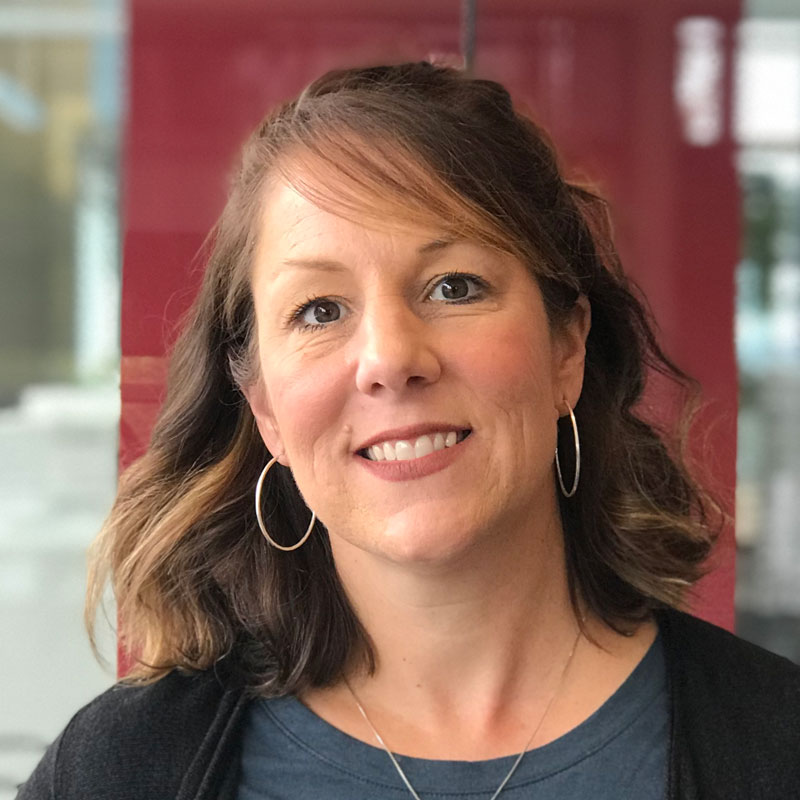
Lisa Wisham, M.Ed.
Senior School Support and Research Associate and School and District Improvement Specialistlisa.wisham@utah.edu
Lisa Wisham, M.Ed.
Senior School Support and Research Associate and School and District Improvement SpecialistLisa Wisham, M.Ed., is a research associate who works with both the Bridgeworks School Improvement Team and the UEPC Evaluation team.
Lisa believes that helping others make intentional connections to align their work around shared outcomes is critical to building collective capacity and strengthening opportunities for Utah students and families.
Lisa's expertise is in out-of-school-time programs, cultivating and strengthening community partnerships, and state and federal school programs.
Within her role on the Bridgeworks School Improvement Team, Lisa has worked closely with the Canyons School District for the past two years. In addition to her work with the school leadership teams and faculties at Midvale and Copperview Elementary Schools, Lisa has helped to develop and facilitate the afterschool professional learning community (PLC) within the district. This PLC utilizes a data-driven continuous improvement cycle to ensure alignment between the afterschool programs and the traditional school day.
Lisa began her career as a certified teacher in an alternative high school here in Utah. She was also the principal of an accredited private school/residential treatment center for five years. She worked at the Utah State Board of Education for nine years in the Federal Programs Office, where she managed federal and state grants for community and afterschool programs. Lisa holds an active Level 2 Utah Educator License.
Lisa has received the following awards: United Way/South Salt Lake Promise Partner of the Year - 2014, City of South Salt Lake; Utah Afterschool Advocate of the Year Award –2017, Utah Afterschool Network.
Lisa holds a Master’s Degree in Special Education from James Madison University.
Lisa is on the Board of Directors at the Utah Afterschool Network.
lisa.wisham@utah.eduLisa believes that helping others make intentional connections to align their work around shared outcomes is critical to building collective capacity and strengthening opportunities for Utah students and families.
Lisa's expertise is in out-of-school-time programs, cultivating and strengthening community partnerships, and state and federal school programs.
Within her role on the Bridgeworks School Improvement Team, Lisa has worked closely with the Canyons School District for the past two years. In addition to her work with the school leadership teams and faculties at Midvale and Copperview Elementary Schools, Lisa has helped to develop and facilitate the afterschool professional learning community (PLC) within the district. This PLC utilizes a data-driven continuous improvement cycle to ensure alignment between the afterschool programs and the traditional school day.
Lisa began her career as a certified teacher in an alternative high school here in Utah. She was also the principal of an accredited private school/residential treatment center for five years. She worked at the Utah State Board of Education for nine years in the Federal Programs Office, where she managed federal and state grants for community and afterschool programs. Lisa holds an active Level 2 Utah Educator License.
Lisa has received the following awards: United Way/South Salt Lake Promise Partner of the Year - 2014, City of South Salt Lake; Utah Afterschool Advocate of the Year Award –2017, Utah Afterschool Network.
Lisa holds a Master’s Degree in Special Education from James Madison University.
Lisa is on the Board of Directors at the Utah Afterschool Network.
Muhammed Yildiz, Ph.D.
Data ScientistMuhammed Yildiz, Ph.D., is a data scientist at UEPC, specializing in quantitative methodology. With over a decade of experience in academia, Muhammed excels in utilizing descriptive, inferential, and predictive analyses to extract valuable insights from complex datasets.
Collaborating closely with seasoned team members, Muhammed designs empirical research projects to answer education policy questions using various data sources, including surveys, school records, and participation data. He is dedicated to providing timely, high-quality, data-driven analyses to inform policymakers and improve educational equity, excellence, access, and opportunities for all.
Muhammed's responsibilities include designing and conducting appropriate statistical analyses using tools such as R or Python, pulling and wrangling data from SQL databases, identifying and addressing data biases, and creating high-quality data visualizations. Additionally, he ensures compliance with federal and state data privacy laws and the University of Utah Institutional Review Board data privacy policies, advising team members on data privacy and security issues.
Before his role at UEPC, Muhammed served as an assistant professor of applied sociology and directed the Institute for Social Research at Utah Tech University, where he taught Social Statistics, Research Methods, Survey Research and Data Analysis, and Quantitative Methodology and supervised numerous research projects.
Muhammed earned his Ph.D. in sociology from Louisiana State University. Committed to leveraging data for positive social change, Muhammed is passionate about advancing research initiatives that contribute to educational policy improvements and promote equity in education.
muhammed.yildiz@utah.eduJulianne Zemaitis, Ph.D.
Research and Evaluation AssociateJulianne Zemaitis, Ph.D., is an Evaluation and Research Associate with the UEPC Evaluation Team. She conducts research with and in support of schools and other partner organizations seeking to better understand and improve educational policies, programs, and practices.
Julianne believes the value of research, assessment, and evaluation is best realized through the development of sustained partnerships with educators, administrators, policymakers, and community members who are the driving forces behind educational policies and practices. She is committed to working alongside these collaborators as a thought partner and methodologist to promote well-informed and responsive research and evaluation practices to address local needs and support continuous improvement.
Julianne’s previous research and evaluation experience includes work in K-12 and higher education settings. Through these experiences, she has developed a robust foundation in quantitative and qualitative research methodologies, evaluation theories, and psychometric principles and practices. Julianne also has extensive experience in project management, survey design, data collection and management, and reporting. Her professional interests include exploring how to effectively develop practitioner-researcher partnerships and leverage the practical and technical skills of evaluation teams and interest groups to support rigorous, timely and efficient research, assessment, and data use practices to promote individual and institutional learning.
Julianne holds a M.S. and Ph.D. in Educational Research, Measurement, and Evaluation from the University of North Carolina Greensboro. She also has a Bachelor of Arts in Psychology from the University of Notre Dame. She is a member of the American Evaluation Association and the American Education Research Association.
julianne.zemaitis@utah.eduJulianne believes the value of research, assessment, and evaluation is best realized through the development of sustained partnerships with educators, administrators, policymakers, and community members who are the driving forces behind educational policies and practices. She is committed to working alongside these collaborators as a thought partner and methodologist to promote well-informed and responsive research and evaluation practices to address local needs and support continuous improvement.
Julianne’s previous research and evaluation experience includes work in K-12 and higher education settings. Through these experiences, she has developed a robust foundation in quantitative and qualitative research methodologies, evaluation theories, and psychometric principles and practices. Julianne also has extensive experience in project management, survey design, data collection and management, and reporting. Her professional interests include exploring how to effectively develop practitioner-researcher partnerships and leverage the practical and technical skills of evaluation teams and interest groups to support rigorous, timely and efficient research, assessment, and data use practices to promote individual and institutional learning.
Julianne holds a M.S. and Ph.D. in Educational Research, Measurement, and Evaluation from the University of North Carolina Greensboro. She also has a Bachelor of Arts in Psychology from the University of Notre Dame. She is a member of the American Evaluation Association and the American Education Research Association.
Graduate Assistants
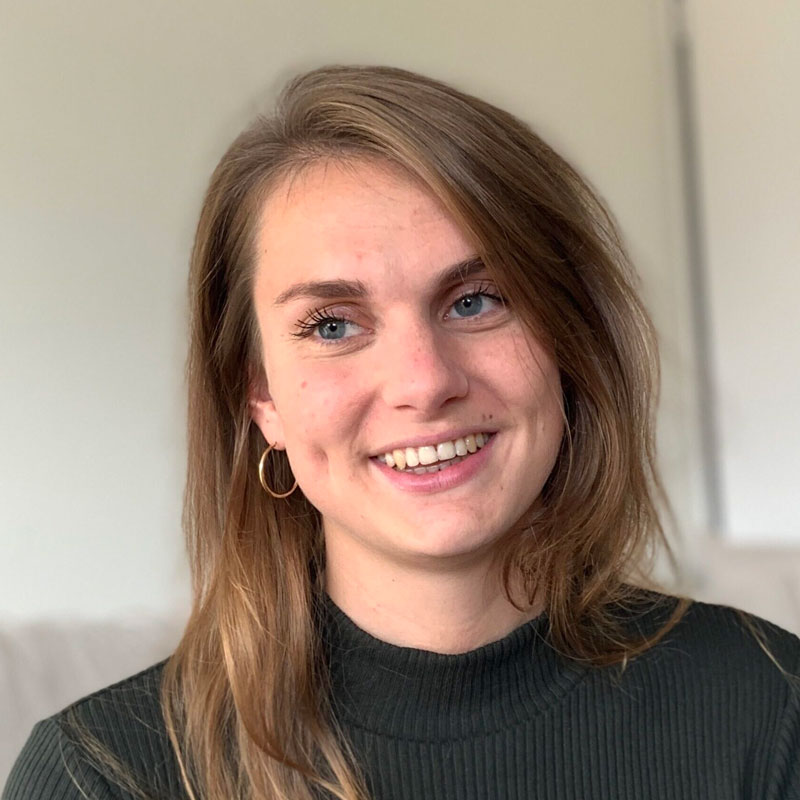
Marieke Timmer, M.S.
Graduate AssistantMarieke Timmer, M.S.
Graduate AssistantMarieke Timmer, MS, is a Graduate Assistant who works with the UEPC team to successfully execute research and evaluation work.
Marieke believes the quality of education is of the highest importance for a successful start in K-12. As a teacher she became interested in what was behind the curriculum, specifically in educational design and assessment, and how she could make it better. Her motivation to improve education led her to pursue a masters and PhD.
Marieke shows dedication to the various projects she works on at UEPC. She informs projects with her experiences as a teacher and researcher. During her studies she has mostly focused on instructional design, assessment, evaluation and educational policy in K-12.
Marieke has worked as a primary school teacher and middle school teacher for six years in the Netherlands and Tokyo. She has developed a framework for cultural education in a Dutch primary school and evaluated the assessment policy for bilingual students at an international school in Japan. Marieke joined the UEPC team in August 2022.
Marieke holds a Bachelor of Education and Master Educational Sciences from Utrecht University, The Netherlands. She is currently working on her Ph.D. in Education, Leadership and Policy at the University of Utah.
Marieke believes the quality of education is of the highest importance for a successful start in K-12. As a teacher she became interested in what was behind the curriculum, specifically in educational design and assessment, and how she could make it better. Her motivation to improve education led her to pursue a masters and PhD.
Marieke shows dedication to the various projects she works on at UEPC. She informs projects with her experiences as a teacher and researcher. During her studies she has mostly focused on instructional design, assessment, evaluation and educational policy in K-12.
Marieke has worked as a primary school teacher and middle school teacher for six years in the Netherlands and Tokyo. She has developed a framework for cultural education in a Dutch primary school and evaluated the assessment policy for bilingual students at an international school in Japan. Marieke joined the UEPC team in August 2022.
Marieke holds a Bachelor of Education and Master Educational Sciences from Utrecht University, The Netherlands. She is currently working on her Ph.D. in Education, Leadership and Policy at the University of Utah.
Faculty Research Associates and Consultants
The UEPC staff also includes Faculty Research Associates and practitioner consultants, who contribute their experience and content expertise. These staff include faculty members and practitioners who demonstrate leadership in educational research, evaluation, technical assistance, and practice at the local, regional, or national levels.
Matt Jameson, Ph.D.
Faculty Research AssociateJ. Matt Jameson is a Professor in Special Education at the University of Utah. Beyond teaching and service, his primary research interests include instructional strategies and inclusive educational procedures for students with significant cognitive disabilities. He has authored and coauthored articles focused on the provision of a free and appropriate public education and highly qualified special education teachers, instructional strategies used to support students with significant cognitive disabilities in inclusive settings, and evaluations of distance education and teacher preparation programs. He has served as the Distance Education Coordinator for the University of Utah’s Department of Special Education since 2004 and has been involved in the design and delivery of distance education course since 2000. He is currently the Program Coordinator for the Low Incidence Disability Program and the Department Chair. He has taught numerous on-campus and distance education courses including an ongoing involvement with supervision of distance education students. In addition, he has worked as an adaptive ski instructor, a classroom teacher for middle school students with significant cognitive disabilities and preschoolers with autism, and a specialist in a residential program for adults with significant cognitive disabilities.
matt.jameson@utah.eduSusan Johnston, Ph.D.
Faculty Research AssociateSusan Johnston, PhD is a professor in the Department of Special Education, the program area coordinator for Early Childhood Special Education, and a UEPC Faculty Research Associate. Dr. Johnston conducts research, teaches and provides technical assistance in the areas of augmentative and alternative communication (AAC) and early childhood special education.
In collaboration with UEPC, Susan uses data to identify effective strategies for supporting the social interactions and academic engagement of students who use AAC. Susan uses single-case research methods to identify evidence-based practices for supporting individuals who use AAC. Further, she conducts qualitative research to solicit the opinions of stakeholders to understand how they perceive the use of AAC strategies and supports.
In addition to publishing her work in top-tier journals, Dr. Johnston is first author on two co-authored books related to AAC. Her first book focuses on AAC intervention strategies for individuals with severe disabilities, and her more recent book focuses on strategies for addressing opportunity barriers experienced by individuals who use AAC. Given her interdisciplinary research, Susan is an active member of and presenter at multiple professional communities including: the American Speech Language Hearing Association (ASHA), the Council for Exceptional Children – Division for Early Childhood, (CEC-DEC) and the International Society for Augmentative and Alternative Communication (ISAAC). Susan also serves on state appointed committees in Utah focused on improving systems and educational supports for young children with disabilities and their families in Utah.
Susan has been with the University of Utah since 1997. She received her MA and Ph.D. in Speech-Language Pathology from the University of Minnesota in Minneapolis, MN. Prior to coming to Utah, Dr. Johnston was an Assistant Professor in the Department of Special Education at Eastern Michigan University in Ypsilanti, MI.
susan.johnston@utah.eduFrankie Santos Laanan, Ph.D.
Faculty Research AssociateDr. Frankie Santos Laanan is the Dean of the College of Education. He is also a Professor in the Departments of Education, Culture, & Society and Educational Leadership and Policy. Before coming to the University of Utah, he was Department Head of Educational Leadership, Policy, and Technology Studies at The University of Alabama and Professor of Higher Education Administration.
Dr. Laanan is currently Principal Investigator (PI) of a Spencer Foundation Grant (Ingram State Technical College: Exploratory Case Study of Incarcerated Adults in Career and Technical Education). He has participated in the University of Utah’s Higher Education System Strengthening Activity (HESSA), a $19 million project funded by United States Agency for International Development to improve Pakistan’s colleges and universities to address the country’s mismatched skills and workplace needs. Laanan is affiliated with the New Leadership Academy (NLA), a nationally recognized leadership development program to help leaders meet the complex challenges associated with equity, diversity, and inclusion in higher education. He is a frequent presenter and facilitator for different NLA sessions at the state and national levels.
Laanan was born and raised on the island of Guam. A Pacific Islander scholar and first-generation college student, he is passionate about engaging in educational research to investigate critical questions about college access and the success of diverse students. He is also committed to translating research into practice and policy to effect transformational change in colleges and universities. He earned his B.A. in Political Science, M.A., and Ph.D. in Higher Education and Organizational Change from the University of California, Los Angeles (UCLA). He believes in education as a tool for social good and has dedicated his career to advancing educational access and removing educational inequities through evidence-based policies and procedures.
frankie.laanan@utah.eduKirsten Lansey, Ph.D.
Faculty Research AssociateKirsten Lansey (she/her), Ph.D., is an Assistant Professor in the Department of Disability and Psychoeducational Studies at the University of Arizona and a UEPC Faculty Research Associate. Her overarching goal is to conduct research, teaching, and service that contributes to systemic educational change so that students with complex support needs receive inclusive and equitable learning opportunities that support them in reaching their goals. Kirsten’s current research focuses on identifying inequities in segregated educational placements of students with disabilities and intersecting identities through the exploration of multi-level factors. Additionally, she examines how the educational placement of students with complex support needs affects their access to free and appropriate public education (FAPE), particularly as it relates to access and progress in the general education curriculum.
Before becoming a faculty member at the University of Arizona, Kirsten was an Assistant Professor in the Department of Special Education at the University of Utah (UU). She collaborates with UEPC and UU colleagues to explore disparities in access to general education contexts for students with disabilities based on student and school-level factors, and how access to general education contexts affects the outcomes of students with disabilities in Utah.
Her work has been featured in journals such as the Research and Practice for Persons with Severe Disabilities, Education and Training in Autism and Developmental Disabilities, the Journal of Special Education, and the International Journal of Special Education. Kirsten is also a member and regular presenter in several research communities, including TASH (Equity, Opportunity, and Inclusion for Persons with Disabilities), AERA (American Educational Research Association, Council for Exceptional Children’s Division of Autism and Developmental Disabilities (CEC-DADD).
klansey@arizona.edu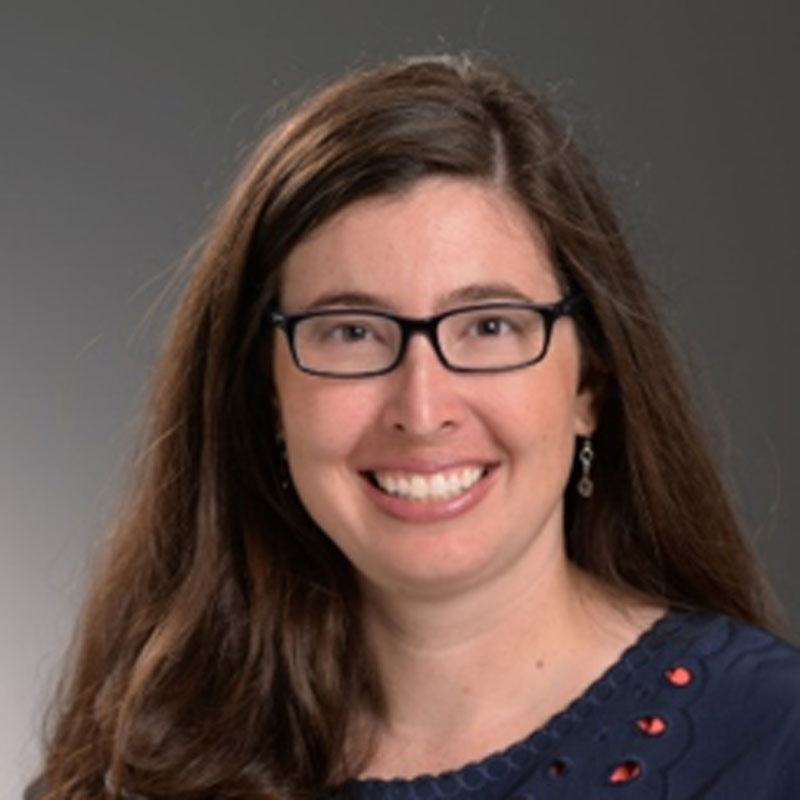
Kim McCormick, Ph.D.
Faculty Research AssociateKim McCormick, Ph.D.
Faculty Research AssociateKim McCormick, PhD, is a Faculty Research Associate who works with UEPC to use data to make continuous education improvements.
Kim knows the importance of the evaluation process and is driven to support stakeholders in not only collecting data that is aligned with the questions they are asking, but also to make meaning from the information that is gathered. In addition, she believes that a vital piece of the evaluation process is to take action based on what is learned from the data.
Kim began her career in education as an elementary classroom teacher in 2003 and had the opportunity to work at a STEM magnet school and an independent school for gifted and talented learners in Indianapolis, Indiana. She continued her work as an educator for seven years as an assistant professor at Salisbury University and Towson University in Maryland. Her work in higher education allowed her to partner with professional development schools to facilitate best practices in high ability education, assessment strategies to document student learning, ways to facilitate cognitive engagement in the classroom, and integrating STEM education with learners.
An ongoing theme of evaluation has been woven throughout Kim’s career. She has extensive experience in working with various stakeholders, leading district, state, and national projects, designing surveys, managing data collection, and sharing results in meaningful ways for clients. She has an upcoming article “Maryland Criteria for Excellence: A Model for Program Evaluation and Improvement” in Teaching for High Potential that highlights a model for practitioners to implement best practices for evaluating their school-wide gifted and talented programs.
Kim has both technology and gifted and talented education endorsements on her teaching license.
Kim holds a Ph.D. in Learning and Developmental sciences with a specialization in Education Philosophy and a minor in Counseling from Indiana University, an M.A. in Educational Psychology with a gifted and talented specialization from Ball State University, and a B.S. in Elementary Education from Butler University.
Kim is a member of the American Educational Research Association, the National Association for the Education of Young Children, the National Association for Gifted Children, and the National Association for Professional Development Schools.
Kim knows the importance of the evaluation process and is driven to support stakeholders in not only collecting data that is aligned with the questions they are asking, but also to make meaning from the information that is gathered. In addition, she believes that a vital piece of the evaluation process is to take action based on what is learned from the data.
Kim began her career in education as an elementary classroom teacher in 2003 and had the opportunity to work at a STEM magnet school and an independent school for gifted and talented learners in Indianapolis, Indiana. She continued her work as an educator for seven years as an assistant professor at Salisbury University and Towson University in Maryland. Her work in higher education allowed her to partner with professional development schools to facilitate best practices in high ability education, assessment strategies to document student learning, ways to facilitate cognitive engagement in the classroom, and integrating STEM education with learners.
An ongoing theme of evaluation has been woven throughout Kim’s career. She has extensive experience in working with various stakeholders, leading district, state, and national projects, designing surveys, managing data collection, and sharing results in meaningful ways for clients. She has an upcoming article “Maryland Criteria for Excellence: A Model for Program Evaluation and Improvement” in Teaching for High Potential that highlights a model for practitioners to implement best practices for evaluating their school-wide gifted and talented programs.
Kim has both technology and gifted and talented education endorsements on her teaching license.
Kim holds a Ph.D. in Learning and Developmental sciences with a specialization in Education Philosophy and a minor in Counseling from Indiana University, an M.A. in Educational Psychology with a gifted and talented specialization from Ball State University, and a B.S. in Elementary Education from Butler University.
Kim is a member of the American Educational Research Association, the National Association for the Education of Young Children, the National Association for Gifted Children, and the National Association for Professional Development Schools.
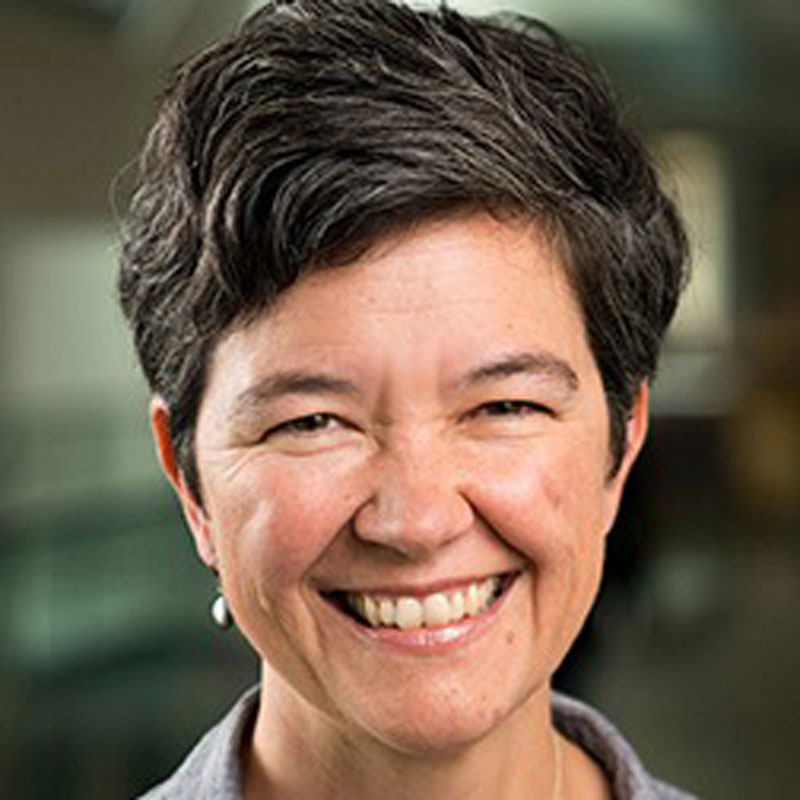
Breda O'Keeffe, Ph.D.
Faculty Research Associate/Continuous Improvement Consultantbreda.okeeffe@utah.edu
Breda O'Keeffe, Ph.D.
Faculty Research Associate/Continuous Improvement ConsultantBreda O’Keeffe, Ph.D. (she/her/hers), is an Associate Professor, the Program Area Coordinator for the Mild/Moderate Disabilities Program, the Associate Chair in the Department of Special Education, and a Utah Education Policy Center Faculty Research Associate at the University of Utah. Her primary research interests include evidence-based practices in assessment, positive behavior supports, and reading instruction for diverse elementary students, including multilingual learners, at-risk for and with disabilities. She is also interested in the interaction between behavior and literacy. She teaches courses on systems change, educational assessment, assessment for students with disabilities, and effective methods for literacy instruction and behavior supports in special education and multi-tiered systems of support.
breda.okeeffe@utah.edu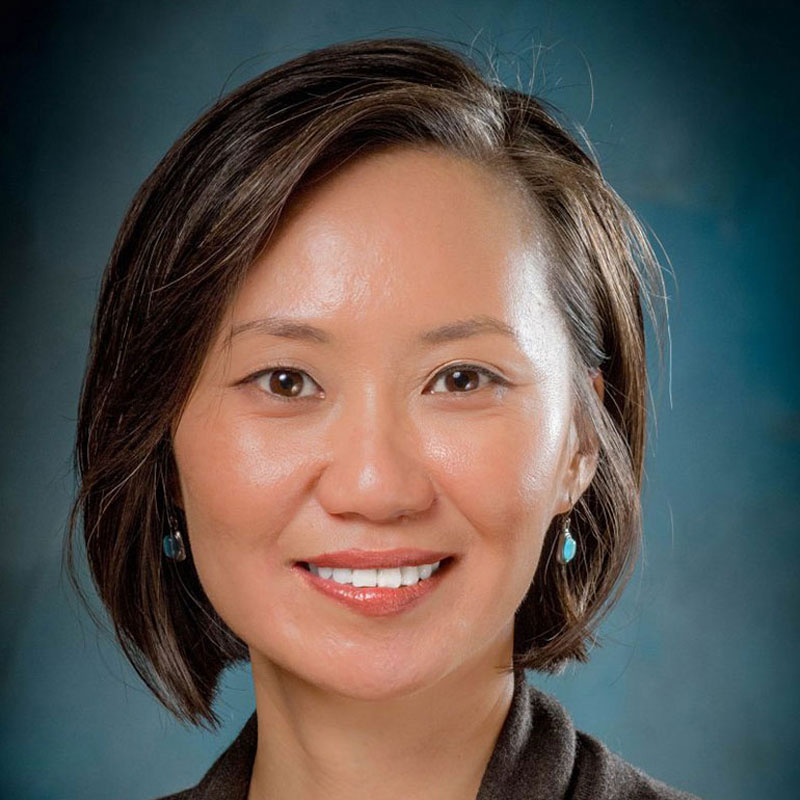
Vicki Park, Ph.D.
Visiting Research Scholar/Continuous Improvement Consultant
Matt Pecsok, B.S.
Faculty Research AssociateMatt Pecsok, B.S.
Faculty Research AssociateMatthew Pecsok is a Faculty Research Associate who works with UEPC stakeholders to help them with data gathering, transformation, analysis, and process improvement/automation.
Matt believes that data driven decisions are a critical tool to help organizations improve their practices. Matt has extensive experience in Information Technology, and a strong background in mathematics/data analytics. He brings a passion for data and technical solutions to each project here at the UEPC.
Matt has supported multiple projects at UEPC in a variety of capacities such as data transformations, process automation, evaluation of statistical methods, and interpretation of results.
Matt has in previous roles built databases, websites, designed and automated reporting systems, maintained and designed Enterprise level software solutions, created analytics resources, built critical server infrastructure, and written many software solutions in a variety of languages. He is particularly proud of his work mentoring team members and clients on technical subjects.
Matt holds a B.S. in Mathematics from Westminster College.
Matt believes that data driven decisions are a critical tool to help organizations improve their practices. Matt has extensive experience in Information Technology, and a strong background in mathematics/data analytics. He brings a passion for data and technical solutions to each project here at the UEPC.
Matt has supported multiple projects at UEPC in a variety of capacities such as data transformations, process automation, evaluation of statistical methods, and interpretation of results.
Matt has in previous roles built databases, websites, designed and automated reporting systems, maintained and designed Enterprise level software solutions, created analytics resources, built critical server infrastructure, and written many software solutions in a variety of languages. He is particularly proud of his work mentoring team members and clients on technical subjects.
Matt holds a B.S. in Mathematics from Westminster College.
Laura Rogers, Ph.D.
Faculty Research AssociateLaura Rogers is an assistant professor in the Department of Educational Policy and Leadership and a faculty research associate at the UEPC. A former elementary school teacher, Laura became an education researcher after realizing how much of her work in the classroom was constrained by policies and systems beyond her control.
Laura’s current research focuses on studying the implementation and effects of policies aimed at improving the quality of the education workforce (e.g., district administrators, school leaders, and teachers). To this end, she uses both quantitative and qualitative (mixed) methods; she is also particularly interested in survey methods, having spent a large portion of her career grappling with issues of survey design, validation, and analysis. Recent projects have included evaluations of national initiatives focused on principal supervisors and district principal pipeline learning communities. With the UEPC, she is presently engaged in an ongoing study of Utah educators’ wellbeing and retention. This latter project has proved to be a meaningful reminder of the resiliency and dedication of Utah teachers. Laura appreciates working with the collaborative and creative UEPC team as a faculty associate.
Laura holds a PhD in K-12 Education Policy from Vanderbilt University, where she was a Dean’s Fellow and a recipient of a Bonsal Applied Education Research Award. She is a member and regular presenter at several research communities, including AEFP, AERA, APPAM, and UCEA.
laura.rogers@utah.eduLaura’s current research focuses on studying the implementation and effects of policies aimed at improving the quality of the education workforce (e.g., district administrators, school leaders, and teachers). To this end, she uses both quantitative and qualitative (mixed) methods; she is also particularly interested in survey methods, having spent a large portion of her career grappling with issues of survey design, validation, and analysis. Recent projects have included evaluations of national initiatives focused on principal supervisors and district principal pipeline learning communities. With the UEPC, she is presently engaged in an ongoing study of Utah educators’ wellbeing and retention. This latter project has proved to be a meaningful reminder of the resiliency and dedication of Utah teachers. Laura appreciates working with the collaborative and creative UEPC team as a faculty associate.
Laura holds a PhD in K-12 Education Policy from Vanderbilt University, where she was a Dean’s Fellow and a recipient of a Bonsal Applied Education Research Award. She is a member and regular presenter at several research communities, including AEFP, AERA, APPAM, and UCEA.
Seung-Hee Claire Son, Ph.D.
Faculty Research AssociateDr. Seung-Hee Claire Son is an associate professor of Educational Psychology, a faculty research associate in the Utah Education Policy Center, a program director of Literacy, Language, and Learning, and the director of EARLY lab at the University of Utah, where she conducts research with her students on the importance of early reading education and school readiness skills among young at-risk children who experience social and economic disparities. She believes in the power of early education and the importance of supporting young children’s reading and literacy development, and has actively served public, community, and professional organizations and committees, including Utah School Readiness Board, Salt Lake City Public Library, Utah Kids Ready to Read, and Sesame Workshop, Inc.
An expert on early literacy, language, and socioemotional development of young children, Claire is an author of numerous research articles and chapters identifying important predictors of early literacy development in the home, school, and community environments. Her current research and projects focus on evaluating early education practices and policies, supporting children’s school readiness, reading development and STEM concepts by facilitating their learning engagement in classroom and using interactive multimedia technologies. To this end, she uses both quantitative and qualitative methods using national, state, as well as local data. With the UEPC, Claire works on a study of Utah’s Science of Reading policy, determining its implementation and impact on students’ reading achievement.
Her research has been received multiple awards from the University of Utah, American Educational Research Association, and International Literacy Association, including recent Dina Feitelson Research Award. Claire earned her PhD from the University of Michigan-Ann Arbor.
clarie.son@utah.edu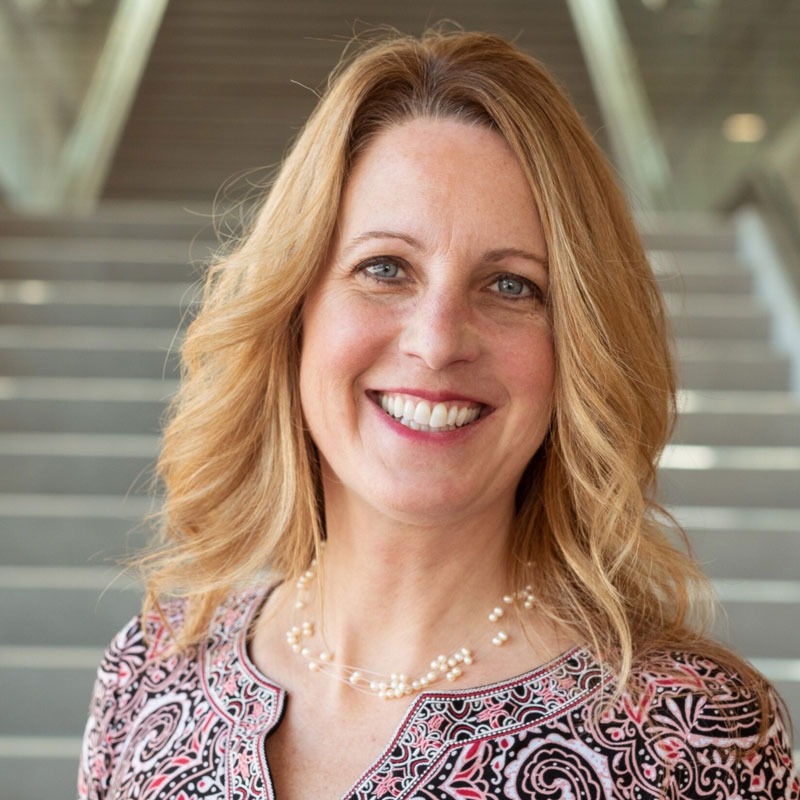
Sondra Stegenga, Ph.D.
Faculty Research Associate/Continuous Improvement Consultantsondra.stegenga@utah.edu
Sondra Stegenga, Ph.D.
Faculty Research Associate/Continuous Improvement ConsultantSondra Stegenga is an Assistant Professor in the Special Education Department, a faculty research associate in the Utah Education Policy Center (UEPC), and an associate faculty member in the Infant Mental Health Program - Department of Psychology.
Prior to becoming a researcher and faculty member at the University of Utah, Sondra worked as an educational provider (occupational therapist) and program administrator in health and educational systems for over 15 years including hospitals, charter schools, and Part C early intervention (birth to three) home visiting programs supporting infants and toddlers with disabilities and their families. It is this prior work and community-based experience that drive her passion for research. Sondra aims to partner with families, educational providers (e.g., occupational therapists, developmental specialists, teachers), and leaders in early childhood and eduational systems to identify and solve real-world pressing issues in education and early learning.
Sondra’s current research and projects focus on leader impacts on the implementation of evidence-based practices and policies in Part C early intervention (birth to three), early social emotional development and infant mental health interventions for young children with disabilities and their families, identification of practices and strategies that foster interdisciplinary and interagency collaboration in complex early childhood community-based settings, policies and use of social media in educational systems, and the use of data science and mixed methods in special education and early intervention research including examining meta-science issues such as ethics and critical inquiry. This research includes actively working with an international workgroup focused on open science practices relevant to mixed methods and qualitative research as well as collaborating within university (across University of Utah Departments) and across univeristies and states to improve preservice training and dissemination/translation of research findings. Sondra recently had one of her translational practice-based articles, “Engaging in Policy through Advocacy”, highlighted in Young Exceptional Children as a featured ‘Article to Action’.
Sondra holds a Ph.D. in Special Education the University of Oregon, a Master of Education in Educational Leadership including credentials in Special Education Administration and Principal Leadership, a Master of Science in Occupational Therapy, and a Bachelor of Science in Behavioral Science from Grand Valley State University. Sondra is an active member and presenter at multiple professional communities due to her interdisciplinary research including: the American Educational Research Association, Council for Exceptional Children – Division for Early Childhood, American Occupational Therapy Association, and the Global Implementation Society. Sondra also currently serves on state appointed committees in Utah focused on improving systems and educational supports for young children with disabilities and their families in Utah including the BabyWatch Utah State Interagency Coordinating Council for Infants and Toddlers with Disabilities as well as Early Childhood Utah’s Early Childhood Education Sub-Committee.
sondra.stegenga@utah.eduPrior to becoming a researcher and faculty member at the University of Utah, Sondra worked as an educational provider (occupational therapist) and program administrator in health and educational systems for over 15 years including hospitals, charter schools, and Part C early intervention (birth to three) home visiting programs supporting infants and toddlers with disabilities and their families. It is this prior work and community-based experience that drive her passion for research. Sondra aims to partner with families, educational providers (e.g., occupational therapists, developmental specialists, teachers), and leaders in early childhood and eduational systems to identify and solve real-world pressing issues in education and early learning.
Sondra’s current research and projects focus on leader impacts on the implementation of evidence-based practices and policies in Part C early intervention (birth to three), early social emotional development and infant mental health interventions for young children with disabilities and their families, identification of practices and strategies that foster interdisciplinary and interagency collaboration in complex early childhood community-based settings, policies and use of social media in educational systems, and the use of data science and mixed methods in special education and early intervention research including examining meta-science issues such as ethics and critical inquiry. This research includes actively working with an international workgroup focused on open science practices relevant to mixed methods and qualitative research as well as collaborating within university (across University of Utah Departments) and across univeristies and states to improve preservice training and dissemination/translation of research findings. Sondra recently had one of her translational practice-based articles, “Engaging in Policy through Advocacy”, highlighted in Young Exceptional Children as a featured ‘Article to Action’.
Sondra holds a Ph.D. in Special Education the University of Oregon, a Master of Education in Educational Leadership including credentials in Special Education Administration and Principal Leadership, a Master of Science in Occupational Therapy, and a Bachelor of Science in Behavioral Science from Grand Valley State University. Sondra is an active member and presenter at multiple professional communities due to her interdisciplinary research including: the American Educational Research Association, Council for Exceptional Children – Division for Early Childhood, American Occupational Therapy Association, and the Global Implementation Society. Sondra also currently serves on state appointed committees in Utah focused on improving systems and educational supports for young children with disabilities and their families in Utah including the BabyWatch Utah State Interagency Coordinating Council for Infants and Toddlers with Disabilities as well as Early Childhood Utah’s Early Childhood Education Sub-Committee.
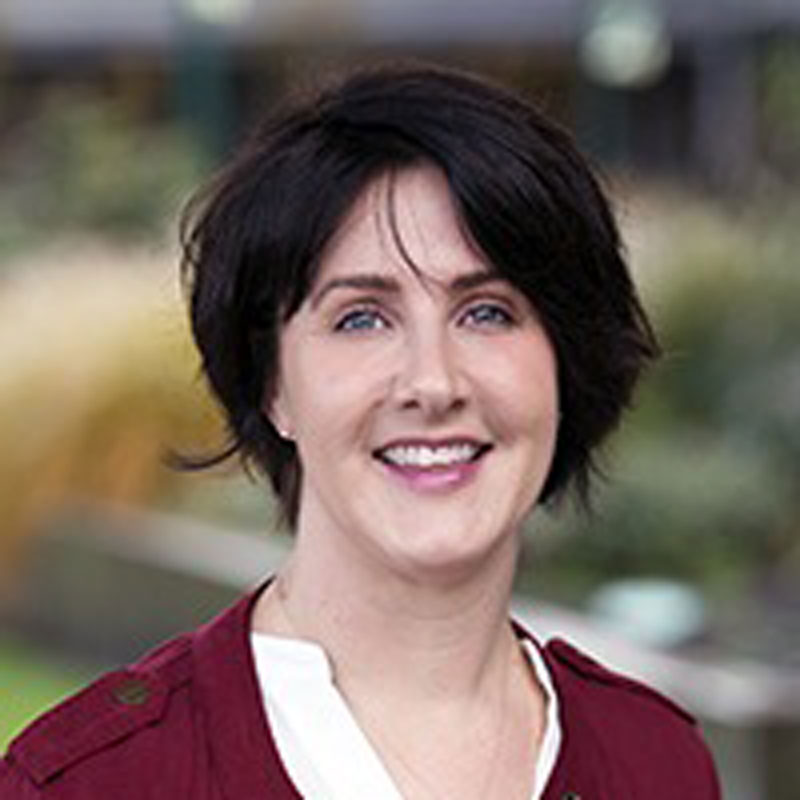
Kathleen Strickland-Cohen, Ph.D.
Faculty Research Associate/Continuous Improvement Consultantkathleen.strickland@utah.edu
Kathleen Strickland-Cohen, Ph.D.
Faculty Research Associate/Continuous Improvement ConsultantDr. Kathleen Strickland-Cohen is an assistant professor and coordinator of the Applied Behavior Analysis Program in the Department of Special Education at the University of Utah. She has a broad background in special education and the application of applied behavior analysis in schools, with extensive experience conducting research and training both preservice teachers and in-service district and school personnel in the design and implementation of function-based behavior support. Her current research interests focus on the implementation of function-based support in inclusive settings, family-school partnership, Tier 2 support in high schools, and inclusion of students with extensive support needs in all aspects of schoolwide PBIS.
kathleen.strickland@utah.eduDavid Woo, Ph.D.
Faculty Research AssociateDavid Woo is an Assistant Professor in the Department of Educational Leadership and Policy at the University of Utah. Before starting his career in higher education, he worked as a high school English teacher on Chicago’s South side for six years. While working as a teacher and grade level lead, he grew interested in the influence of school leadership and policy on educational outcomes for students of color and students from low-income families. To gain the theoretical foundations and quantitative research methods he would need to interrogate the ways that school leaders can support or hinder the learning of students from marginalized communities, he completed an M.Ed. in Instructional Leadership with a concentration in Education Policy Studies at the University of Illinois at Chicago before pursuing a Ph.D. at Vanderbilt University in the Department of Leadership, Policy, and Organizations. His research centers on understanding how education policy and research can inform the preparation and support of school leaders to be effective instructional leaders and organization managers. Some of his current research examines the impact of assistant principals on school culture, the relationship between prior work experiences on early career principal performance, and the factors that influence collective bargaining in the charter school context.
david.s.woo@utah.eduIrene Yoon, Ph.D.
Faculty Research AssociateIrene H. Yoon, Ph.D. (she/her), is associate professor of Educational Leadership & Policy in the College of Education at the University of Utah. Starting from the point of radical love and critical hope, her research is concerned with leadership and learning environments that contribute to equity and justice for young people and their teachers. In particular, she studies intersections of race, class, gender, and disability in school-wide cultural practices and structures. In addition to book chapters, Dr. Yoon and her co-authors have published in American Educational Research Journal, Race Ethnicity and Education, Teachers College Record, Journal of Educational Administration, the International Journal of Qualitative Studies in Education, Educational Studies, and more. Her research has been funded by the University of Utah Vice President for Research, the B.W. Bastian Foundation, the Spencer Foundation, and the University of Utah’s College of Education.
Previously, at the Utah Education Policy Center (UEPC), Dr. Yoon was the project lead for external School Support Teams to schools in Title I program improvement. Dr. Yoon also served as qualitative researcher for the UEPC’s evaluation projects and program improvement efforts.
irene.yoon@utah.edu
Christy Austin, Ph.D.
Continuous Improvement ConsultantChristy Austin, Ph.D.
Continuous Improvement ConsultantDr. Christy Austin is an Assistant Professor in the Educational Psychology Department at the University of Utah. Dr. Austin’s work centers on reading instruction and intervention for students with reading difficulties and disabilities, including multilingual students and students with dyslexia. Specifically, her research focuses on meta-analysis of reading interventions and on developing and testing the effects of reading instruction and intervention focused on decoding, multisyllabic word reading, fluency, vocabulary, and comprehension of complex texts. Dr. Austin has extensive experience working with districts, schools, school administrators, and teachers to improve reading outcomes for struggling readers. She worked as a Special Education Coordinator and Assistant Principal prior to beginning her work as an Assistant Professor. In this role, Dr. Austin provided instructional coaching to special education and general education teachers across grades K-8 to support teachers in using student data effectively and in providing effective reading instruction and intervention. In addition, Dr. Austin teaches undergraduate and graduate courses to prepare preservice and inservice teachers, translating scientifically based reading research to support teachers in implementing evidence-based practices during reading instruction and intervention. Dr. Austin conducts intervention research in schools and also trains research assistants to implement interventions with fidelity.
On a national level, her research has been cited in journals, education agencies (i.e., Education Commission of the States, National Charter School Resource Center), academic blogs, and different media outlets, including press inquiries and interview requests (i.e., New York Times; Education Week; Chalkbeat; ProPublica; The Commercial Appeal; School Administrator Magazine; Brown University’s Daily Herald; California Matters; and the Hechinger Report). Her research on charter school boards in Massachusetts has been featured by the Harvard Kennedy School’s Shorenstein Center on Media, Politics, and Public Policy. Her work on suburban and rural charter schools has been cited in a recent New York Time article. She served on the Technical Review Panel for the National Household Education Surveys (NHES) on homeschooling and virtual schools, sponsored by USDOE’s National Center for Education Statistics. She has served as a Forum Fellow for The Forum on the Future of Public Education at the University of Illinois Urbana Champagne. She has also contributed guest blog posts to the Network of Independent Charter Schools Project (funded by the U.S. Department of Education) on topics related to current school choice programs and issues related to charter schools.
Charisse is skilled in writing for a general audience, including policy audiences, and using data to plan and enhance school performance. With her experience, she has helped establish twelve start-up charter schools in New York City, Newark, and Memphis. Charisse collaborated with boards, school leaders, and community-based organizations to strengthen school programs, accountability, equity, and continuous improvement systems. In addition, throughout the pandemic, she mentored aspiring school leaders in conducting improvement projects from various perspectives and methodologies, such as Improvement Science and Networked Improvement Communities (NICS).

Natalie Badgett, Ph.D.
Continuous Improvement ConsultantNatalie Badgett, Ph.D.
Continuous Improvement ConsultantNatalie Badgett is an assistant professor of special education at the University of Utah. She is a Board-Certified Behavior Analyst – Doctoral and has extensive experience in the implementation of evidence-based behavioral practices in applied and educational settings. Her research is focused on promoting inclusion through sustainable implementation of behavioral strategies in educational and community contexts. Specific research interests include identifying barriers and facilitators to implementation of assessment and intervention founded in applied behavior analysis, development and evaluation of sustainable training and support models for behavior analysts, educators, and other change agents, and evaluating modifications to established behavioral strategies with the goal of promoting dissemination and implementation. She uses single case, qualitative, and mixed research methods in her research and employs participatory research methods to ensure contextual relevance of her findings.
Dr. Badgett has worked with families and educators to support learners with intellectual and developmental disabilities, including autism, in home, school, and educational settings for 15 years. In this capacity she has provided direct assessment and intervention services to learners, and engaged in individual-, classroom-, and district-level training relevant to supporting learners who engage in problem behavior. Her current work related to implementation in schools focuses on developing contextually relevant, needs based, accessible training for educators and families as they support learners who engage in problem behavior.

Lauren Bailes, Ph.D.
Continuous Improvement ConsultantLauren Bailes, Ph.D.
Continuous Improvement ConsultantLauren P. Bailes is an associate professor in the School of Education at the University of Delaware. She serves as the program coordinator for the Ed.D. in Educational Leadership program. Her scholarship focuses on the ways in which organizational, social-cognitive, and leadership theory unite to promote the success of school leaders and K12 students. Specifically, she addresses three distinct strands of research: social cognitive theory and the efficacy beliefs of school stakeholders, especially as they relate to school organizational characteristics, school leader preparation, placement, and evaluation, and shared influences of leaders and organizations on favorable conditions for student success.
She also regularly partners with local schools, districts, and SEAs (State Education Agencies) in order to support their efforts to enhance climate, collective efficacy, and equity. She has ample experience delivering targeted, interactive, and embedded professional learning to a diverse array of professional and community audiences. Some of those efforts have addressed the following topics: curricular coherence, specifically in English Language Arts in elementary and middle schools. assessing and enhancing organizational level of collective efficacy and academic optimism. using collective efficacy as a lever to increase equity in student discipline, and equity, ethics, and efficacy among aspiring school leaders.
Dr. Bailes received her doctorate in Educational Administration from The Ohio State University. Prior to receiving her doctorate, Bailes taught middle school English Language Arts (ELA) in Brooklyn, New York, designed ELA curriculum and assessments for fifth-eighth grade students, and served as a professional development and literacy coach in Columbus, Ohio.

Bryan Becherini, Ed.D.
Continuous Improvement ConsultantBryan Becherini, Ed.D.
Continuous Improvement Consultant
Nicole Butolph, M.S.
Continuous Improvement ConsultantNicole Butolph, M.S.
Continuous Improvement ConsultantFor the past 18 years Nicole Butolph has proudly donned the title of K-12 School Counselor in Utah (both elementary and secondary). From the implementation, professional development and coaching of staff in programs such as: Positive Behavior Interventions and Supports (PBIS), Multi-tiered Systems of Supports (MTSS), Social Emotional Learning (SEL), behavioral Response to Intervention (RTI) practices, Restorative Practices, and Trauma Informed practices, to specific programs of CHAMPS, Dialectic Behavioral Therapy Skills for Schools (DBT STEPS-A), Mindful Schools, and QPR (suicide prevention), one could play BINGO for educational acronyms in reviewing Nicole’s professional skill set. It is with this skill set and a deep gratitude for a career that has afforded her a great deal of opportunities, that Nicole is hoping to add to the collective effort that is public education and is currently working on the completion of a Doctorate of Education degree in Educational Leadership and Policy. Go Utes!

Christine Christensen, M.Ed.
Continuous Improvement ConsultantChristine Christensen, M.Ed.
Continuous Improvement ConsultantChristine Bybee Christensen is a doctoral candidate in the Education Leadership and Policy department at the University of Utah. She is a graduate of Brigham Young University with a B.S. in Elementary Education and an M.Ed. in Educational Leadership and Foundations and has earned State of Utah endorsements in reading, elementary mathematics, instructional coaching, and educational technology. Christine is currently the Principal of Woodrow Wilson Elementary School in South Salt Lake City, Utah, and former President of the Granite Association of Elementary School Principals (GAESP). Christine has served as a principal in Granite School District since 2012. At Wilson Elementary, an urban Title I school, Christine’s leadership helped the school successfully exit state turnaround status in 2018. Before her tenure in administration Christine worked as a district literacy coach, school literacy and instructional coach, and an elementary classroom teacher. Christine has been recognized as Jordan Education Foundation Outstanding Educator of the Year (2010), GAESP Instructional Leader of the Year (2017), The City of South Salt Lake Education Leader of the Year (2019), GASA Elementary Administrator of the Year (2021), UAESP Principal of the Year (2023) and NAESP National Distinguished Principal (2023).

Amber Clayton, M.Ed.
Continuous Improvement ConsultantAmber Clayton, M.Ed.
Continuous Improvement Consultant
Lexi Cunningham, Ed.D.
Continuous Improvement Consultant
Aaron Fischer, Ph.D.
Continuous Improvement ConsultantAaron Fischer, Ph.D.
Continuous Improvement ConsultantAaron J. Fischer, PhD, BCBA-D, is a Licensed Psychologist and Licensed Board- Certified Behavior Analyst, associate professor of school psychology, and adjunct associate professor of psychiatry. He serves as the director of the University of Utah Technology in Training, Education, and Consultation (U-TTEC) Lab, Utah School Mental Health Collaborative, and Huntsman Mental Health Institute HOME interdisciplinary pediatric feeding disorders clinic. Dr. Fischer has been working with individuals on the autism spectrum and individuals with social-emotional and behavioral problems, and their families, for over 20 years.

Madeline Hafner, Ph.D.
Continuous Improvement ConsultantMadeline Hafner, Ph.D.
Continuous Improvement Consultant
Kate Helbig, Ph.D.
Continuous Improvement ConsultantKate Helbig, Ph.D.
Continuous Improvement ConsultantKate A. Helbig, PhD., BCBA-D, NCSP, is an assistant professor in the school psychology program at the University of Utah. She is a Licensed Psychologist, Board-Certified Behavior Analyst, and Nationally Certified School Psychologist. She has over 10 years of experience collaborating with school personnel to implement evidence-based behavioral interventions to improve the lives of students with neurodevelopmental disabilities in socially meaningful ways. Her research interests include social skills teaching for students on the autism spectrum and transition services for individuals with intellectual and developmental disabilities.

Sharlene Kiuhara, Ph.D.
Continuous Improvement ConsultantSharlene Kiuhara, Ph.D.
Continuous Improvement ConsultantSharlene A. Kiuhara is Associate Professor of Special Education at the University of Utah. She completed her Ph.D. in Special Education in 2009 and a 2-year post-doctoral fellowship in Special Education at Peabody College, Vanderbilt University in 2011. She received the Early Career Publication Award from the Division of Research, Council for Exceptional Children, a national award that recognizes outstanding research; is a founding member of The Aletheia Society, an open-source national platform for promoting special education research transparency and scientific rigor; is serving a 5-year term as an IES Principle Grant Proposal Reviewer for Reading, Writing, and Language Development; and participates as a Special Education Research Accelerator (SERA) partner on a crowdsourced funded project by the NSF that seeks to understand how varying instructional approaches and supports affect elementary students' classroom engagement during science instruction. She has led numerous in-service professional development sessions sponsored by the Utah State Board of Education and participating districts across the Wasatch Front designed for classroom teachers, special educators, and service providers. Dr. Kiuhara's primary scholarship focuses on student intervention and professional development of practitioners in areas including inclusion, adapting curricula to address learners' needs within a multi-tiered system of supports, language development, and how argumentative writing can facilitate learning and mathematical reasoning for students with a range of learning support needs.

Alli Martin, Ed.D.
Continuous Improvement ConsultantAlli Martin, Ed.D.
Continuous Improvement ConsultantDr. Alli Martin (she, her) has over 20 years of professional experience as an educator in Utah public schools. She has held a wide variety of positions including a high school teacher, instructional coach, educational technology specialist, assistant principal, and safe schools specialist. She currently serves as Salt Lake City School District's Director of SEL and MTSS where she oversees various systems of support for students including safety and security, emotional wellbeing, and restorative disciplinary practices. In addition, Dr. Martin frequently provides professional learning focused on creating supportive and welcoming school environments.

Katherine O'Donnell, Ph.D.
Continuous Improvement ConsultantKatherine O'Donnell, Ph.D.
Continuous Improvement Consultant
Lynne Perez, Ph.D.
Continuous Improvement ConsultantLynne Perez, Ph.D.
Continuous Improvement ConsultantDr. Lynne Perez began her education career as a middle school teacher in Lake Forest, IL. Upon earning her masters’ and doctoral degrees in educational administration at The Ohio State University, Dr. Perez served as an assistant professor of educational administration at St. John’s University (Queens, NY) and as a visiting professor/lecturer of educational policy and leadership at The Ohio State University (OSU) and San Diego State University (SDSU). From 2006 to 2018, Dr. Perez helped lead the work of SDSU’s National Center for Urban School Transformation (NCUST), conducting research on high-performing urban schools and providing direct support to schools and districts interested in emulating the practices and structures studied this these very successful schools. Dr. Perez has co-authored two books - Teaching Practices from America’s Best Urban Schools and Leadership in America’s Best Urban Schools – both of which are based on NCUST’s research. For the past four years, Dr. Perez, in collaboration with OSU, has provided direct support for a struggling urban school in Columbus, Ohio.

Wenyang Sun, Ph.D.
Continuous Improvement ConsultantWenyang Sun, Ph.D.
Continuous Improvement ConsultantWenyang Sun, Ph.D., is an Assistant Professor in the Department of Education, Culture & Society and an affiliate faculty member of the Asia Center at the University of Utah. Her research explores how larger sociopolitical contexts shape the experiences of multilingual students and families in the United States and globally. Dr. Sun is fluent in both Mandarin Chinese and English and has worked intensively with Mandarin-English dual language teachers. She has taught undergraduate and graduate courses to preservice teachers serving multilingual learners and has conducted research and professional development on topics relevant to teacher education, multilingual learners, and family/community engagement. She has worked on multiple research and program evaluation projects funded by various institutions, including the U.S. Department of Education, the Spencer Foundation, the William T. Grant Foundation, and the National Science Foundation. Dr. Sun holds a Ph.D. in Cultural Studies and Literacies from the University of North Carolina at Chapel Hill and an M.Ed. in English Language Learners from Vanderbilt University.

Veronica Valdez, Ph.D.
Continuous Improvement ConsultantVeronica Valdez, Ph.D.
Continuous Improvement ConsultantVerónica E. Valdez (Ph.D., The University of Texas at Austin) is Professor and Department Chair in the Department of Education, Culture and Society and project director of the APEX Project, a five-year U.S. Department of Education, Office of English Language Acquisition, National Professional Development-funded University-District Partnership Program at the University of Utah with a focus on the professional development of educators of multilingual learners and their families to enhance literacy, family engagement, and content learning through ESL/DL instructional practices. She earned her doctorate degree in Curriculum and Instruction specializing in Multilingual Studies. She has over twenty years of experience working with culturally and linguistically diverse programs, teachers, students, families, and communities in several states across the U.S. from preschool to older adults prior to entering higher education. Her interdisciplinary research focuses on four interrelated and often overlapping strands: educational language policy and planning and its equity impacts for multilingual students designated as English learners; language learning efforts that foster multilingualism/biliteracy in school and out-of-school contexts; the education of Latinx students; and teacher education and practices that promote the values of multilingualism, multiculturalism, and justice across educational settings. Her most recent research examines the preparation of ESL and dual language teachers and the ecology of great teaching for multilingual learners.

Elizabeth Walsh, M.S.
Continuous Improvement ConsultantElizabeth Walsh, M.S.
Continuous Improvement ConsultantElizabeth Walsh is an educational leader with 15+ years of experience in public and independent schools in the United States and abroad. Most recently, Elizabeth served as an administrator and instructional science coach in highly impacted Title 1 schools in the Salt Lake City School District. In recent years, she conducted appraisals of K-12 schools and implemented evaluation plans as a research associate for the Utah Education Policy Center (UEPC). Elizabeth’s school improvement work is centered around fostering changes in practice through the development of high-functioning teams and responsive coaching cycles. Using data-driven strategies, she has designed and facilitated site-based and district-wide professional learning around three-dimensional science instruction, student engagement, and teacher leader development. In addition, Elizabeth’s drive to create equitable educational experiences for all students has influenced her design and implementation of multi-tiered systems of support, alternative language services, and student-driven instruction. In Fall 2024, Elizabeth will join the Urban Institute for Teacher Education at the University of Utah as an adjunct faculty member. Elizabeth holds a M.S. in Science Education from Montana State University Bozeman and is a licensed educator and school administrator in Utah.

Tuba Yilmaz, Ph.D.
Continuous Improvement ConsultantTuba Yilmaz, Ph.D.
Continuous Improvement ConsultantTuba Yilmaz is an Assistant Professor in the Department of Education, Culture, and Society at the University of Utah. She earned her MAE and PhD in ESOL/Bilingual Education at the University of Florida. She has ten years of teaching experience at K-12 and tertiary levels in Turkey and the USA. She currently teaches the courses “Multicultural Education,” “Assessment of linguistically diverse populations,” and “Instructional Methods for linguistically diverse populations.” Her previous research studies focused on bi/multilingual learners’ languaging practices across different contexts, equity-based practices for refugee background students in public schools, and raciolinguistic ideologies in non-western contexts. Her current research focuses on integrating diverse student groups in dual language education programs with the use of AI-written dramas, and the intersectionality of student identities in dual language education programs.

